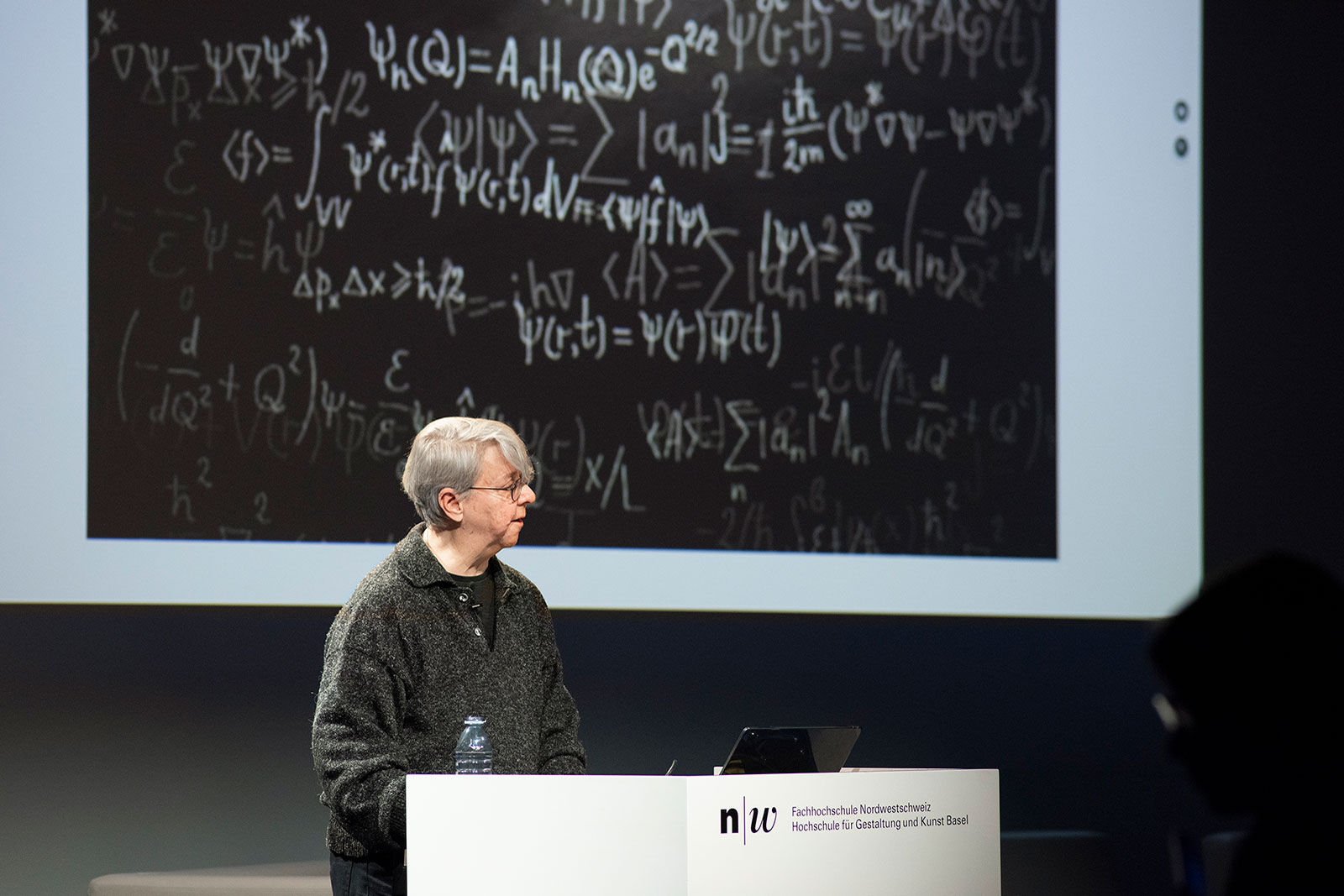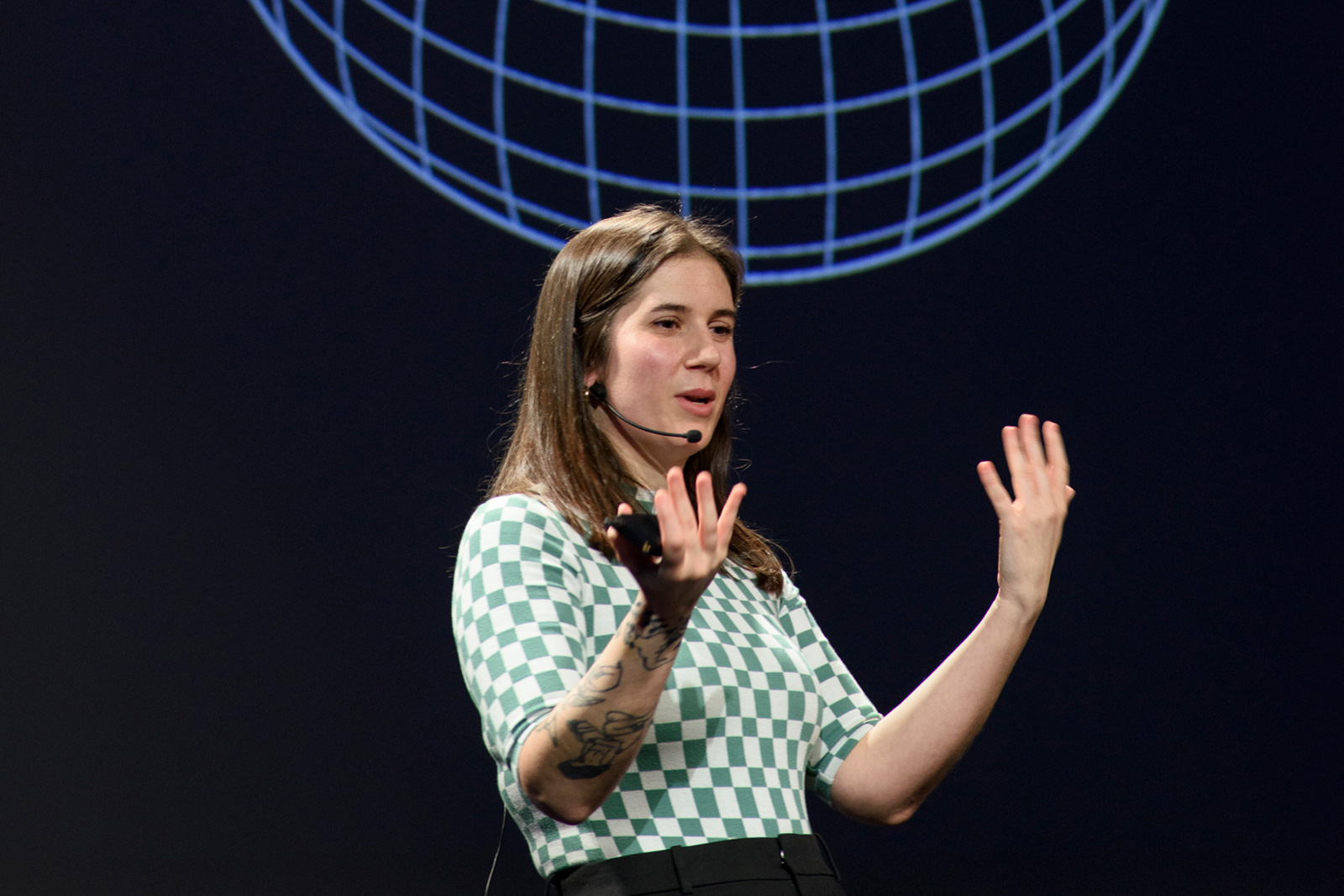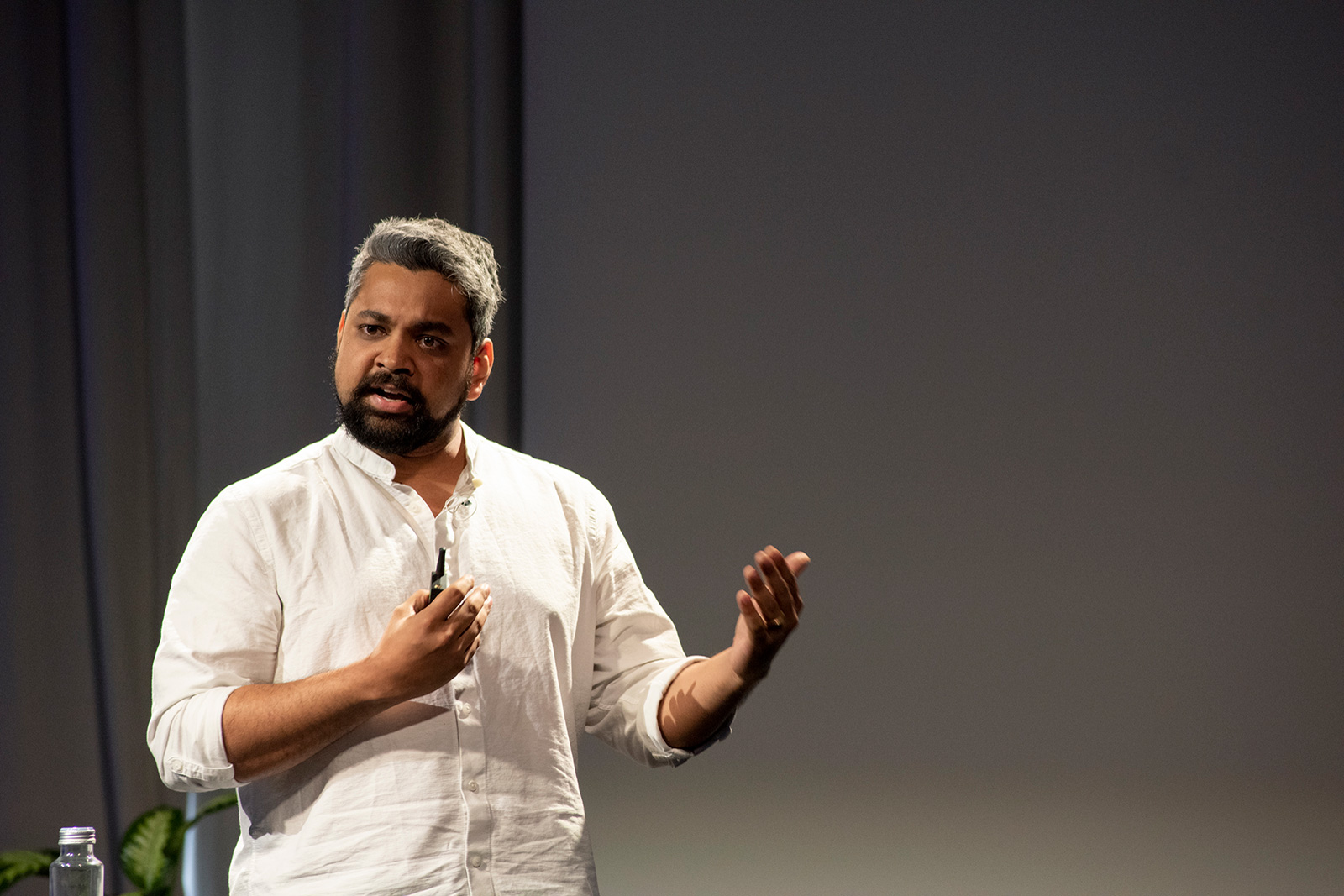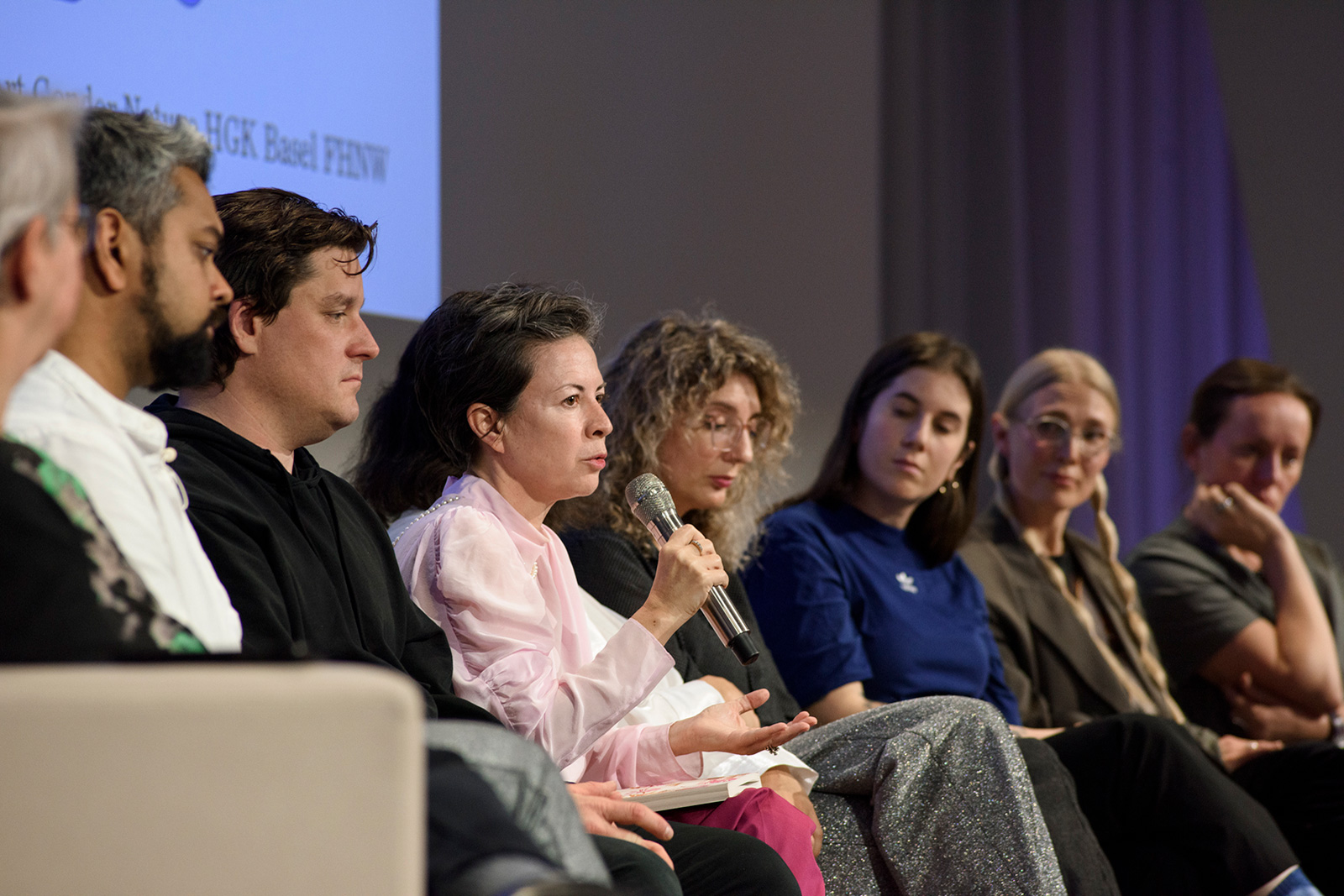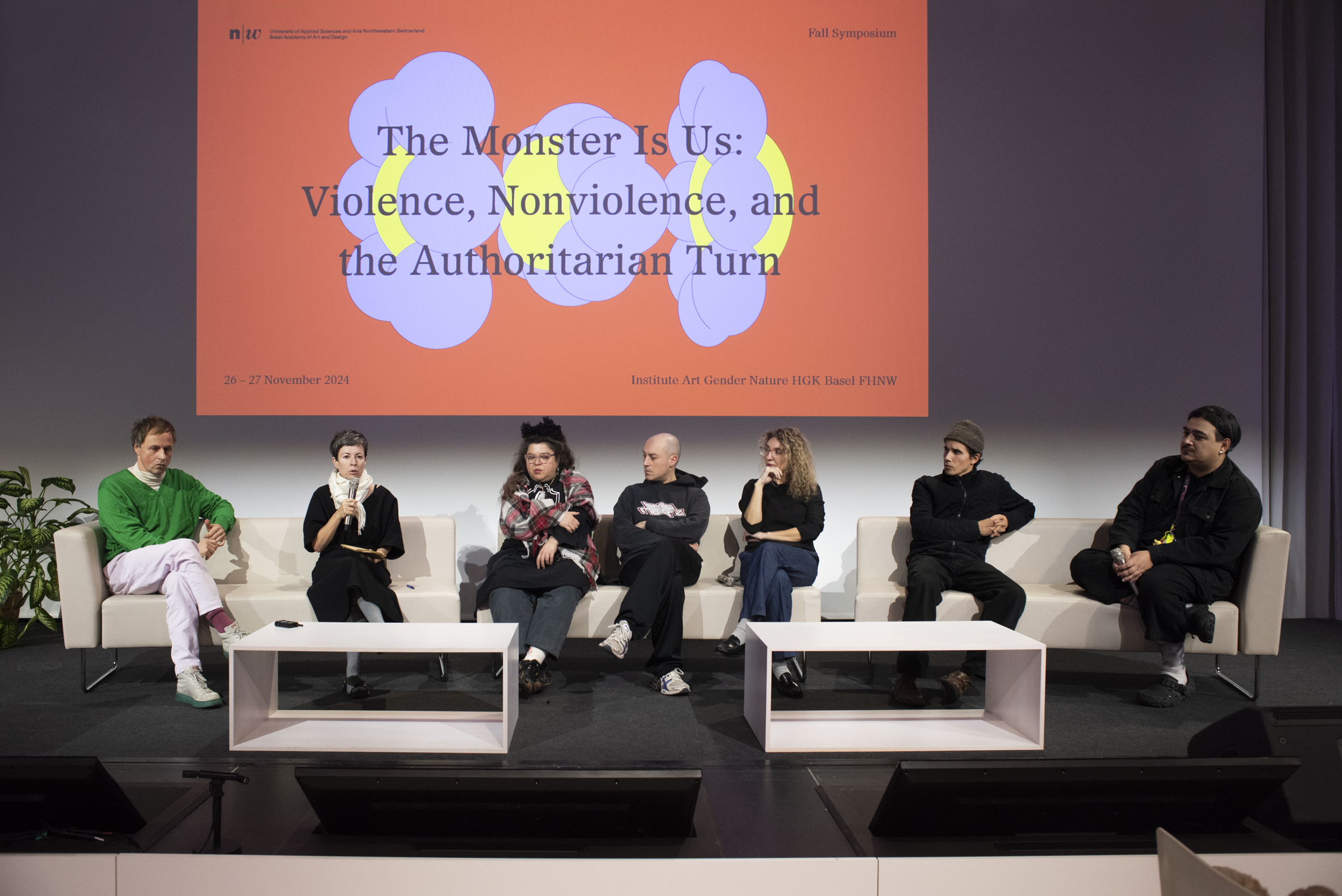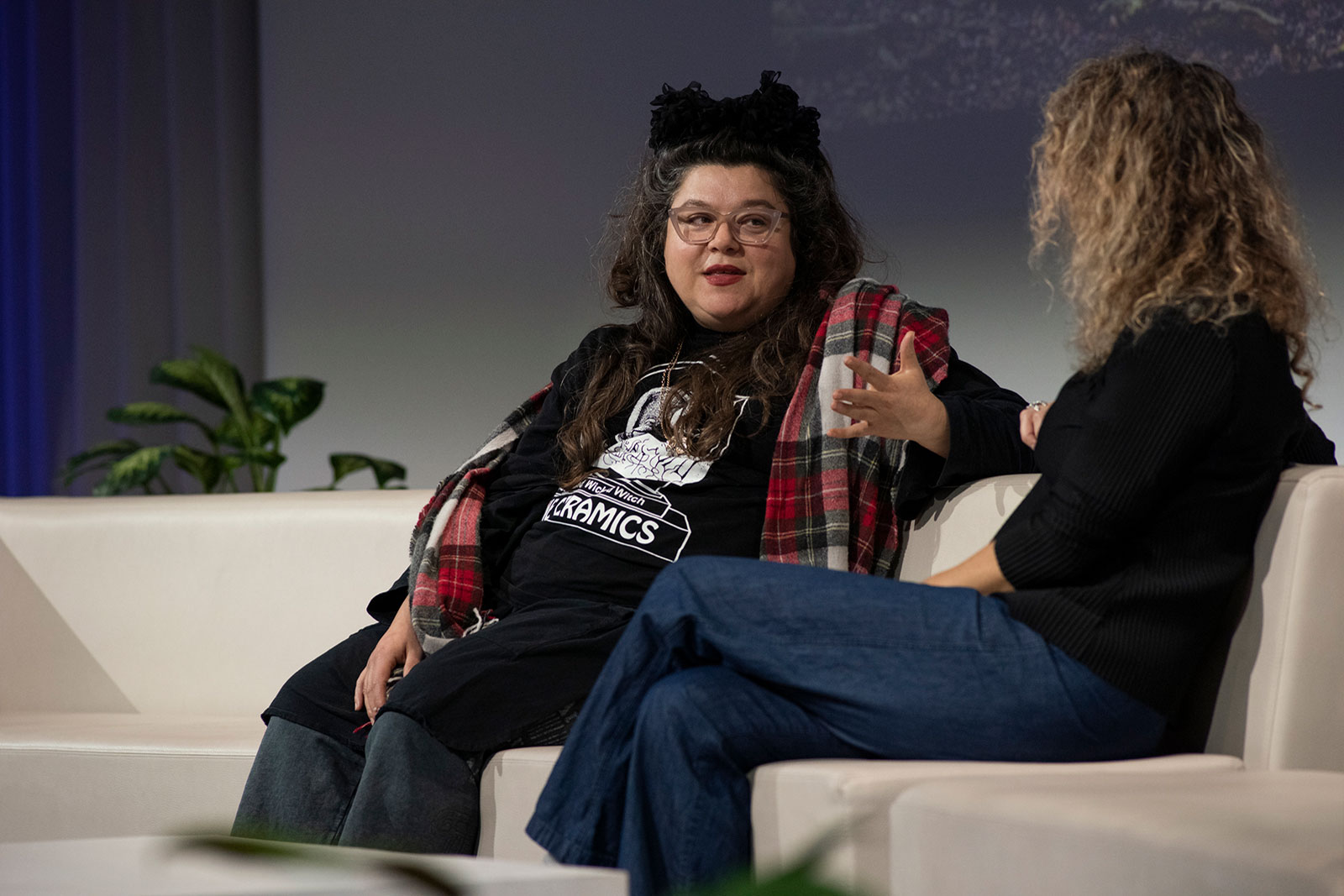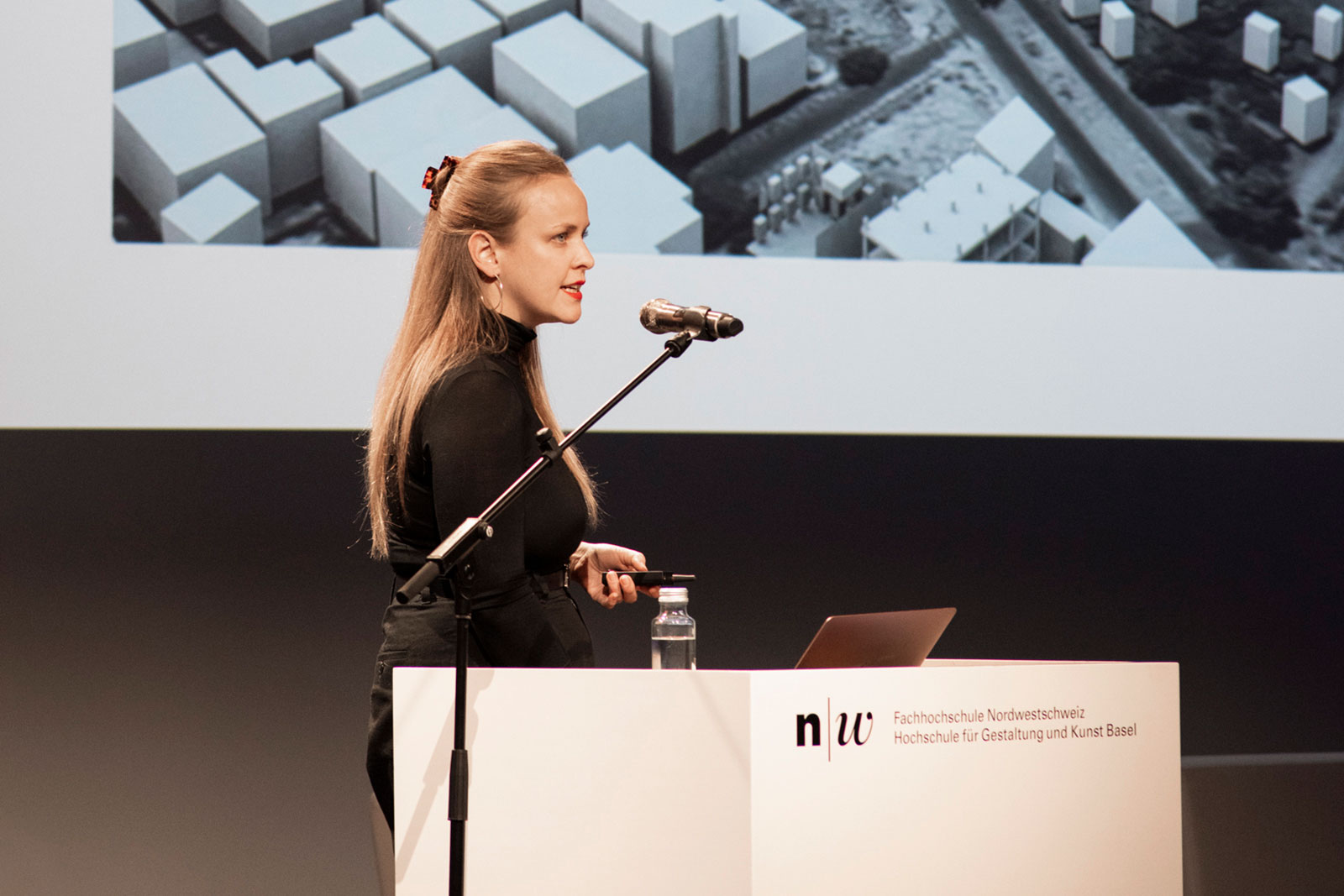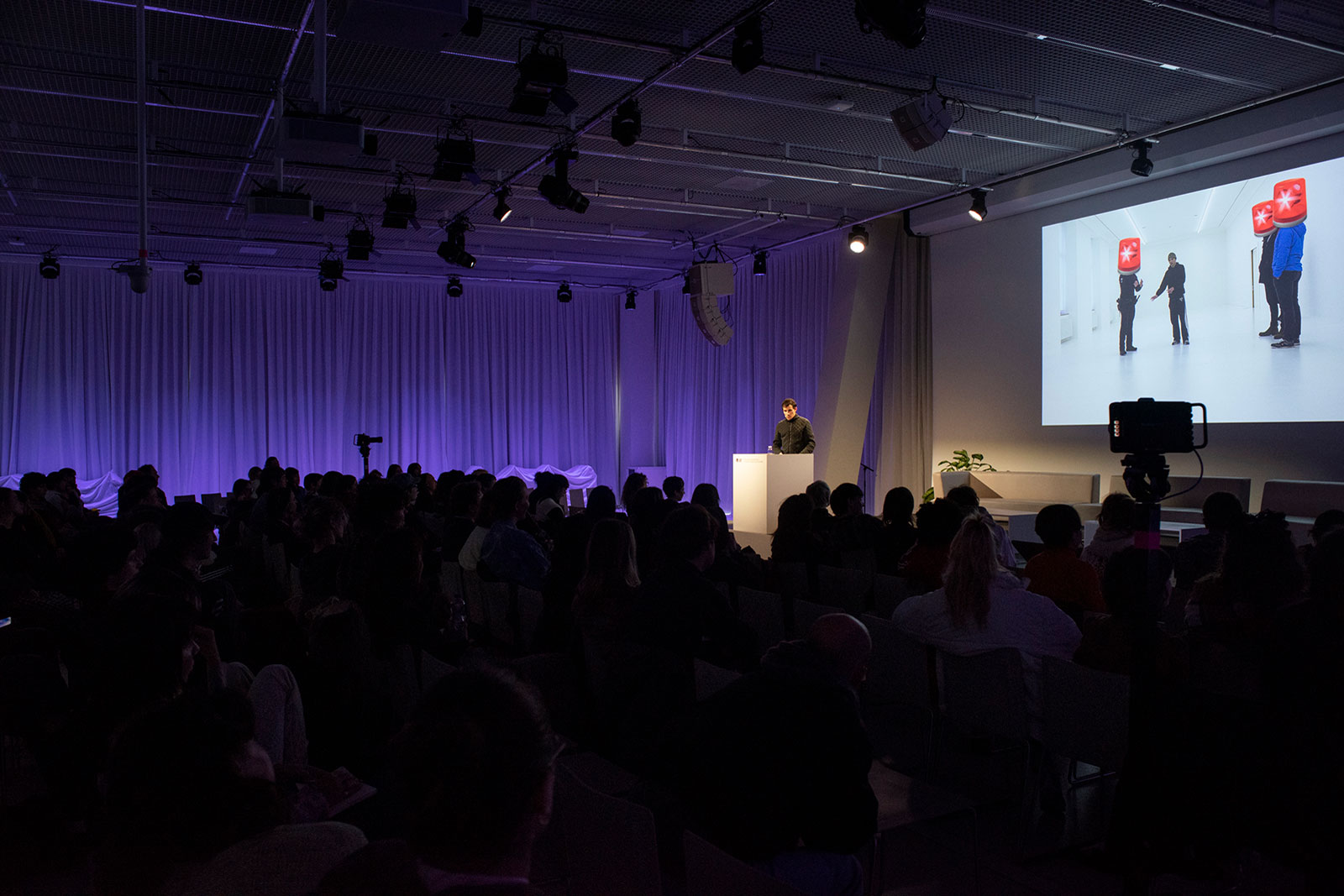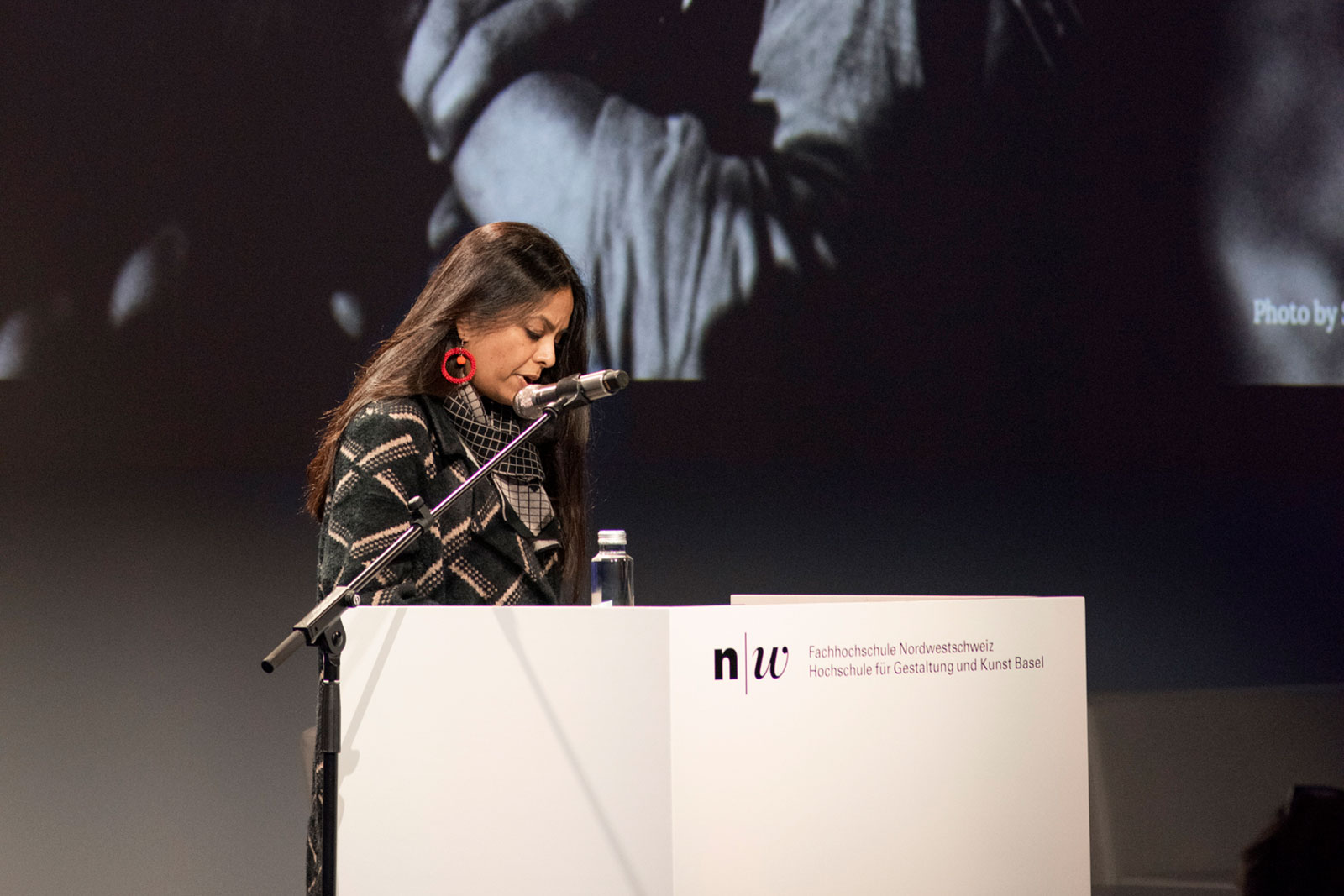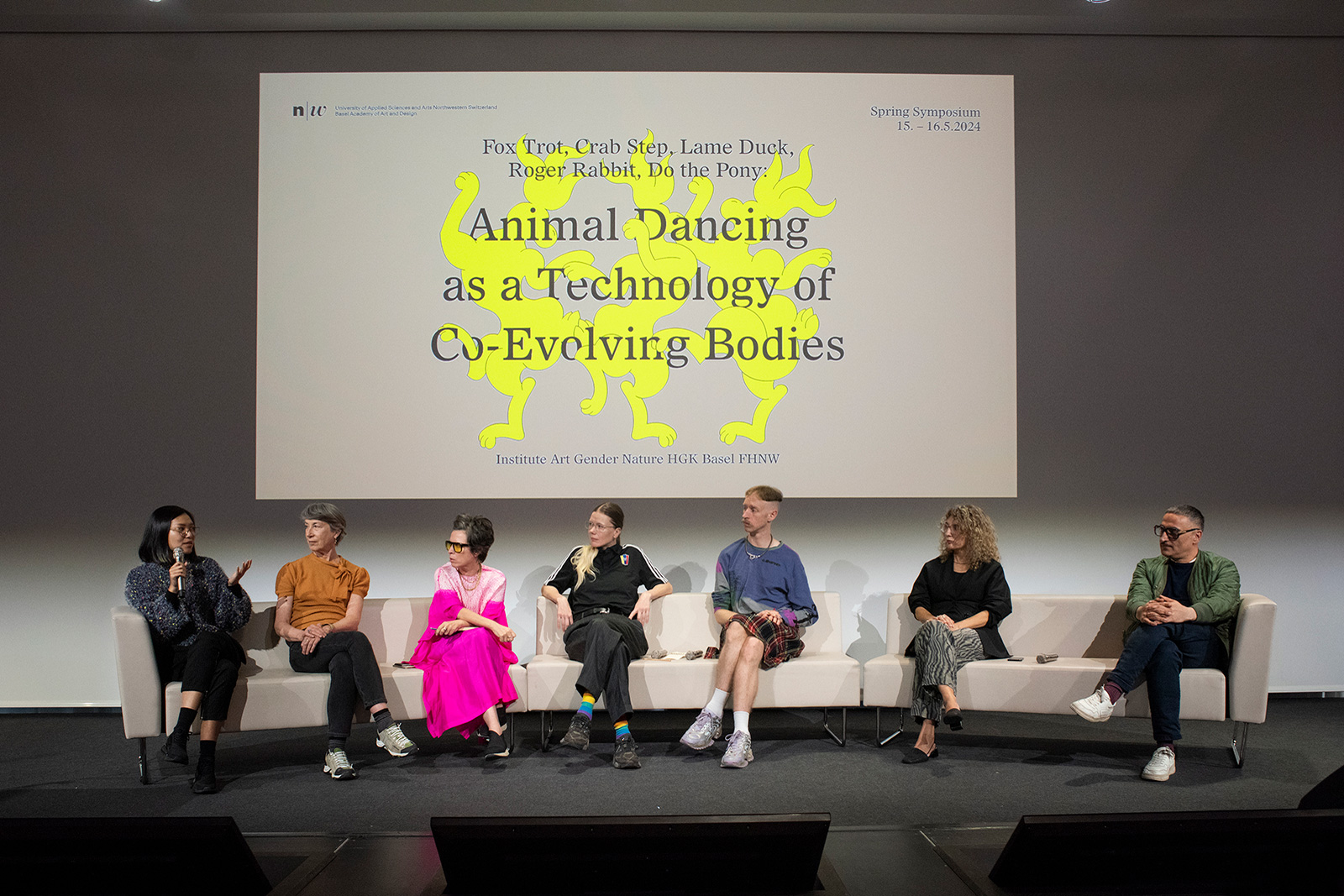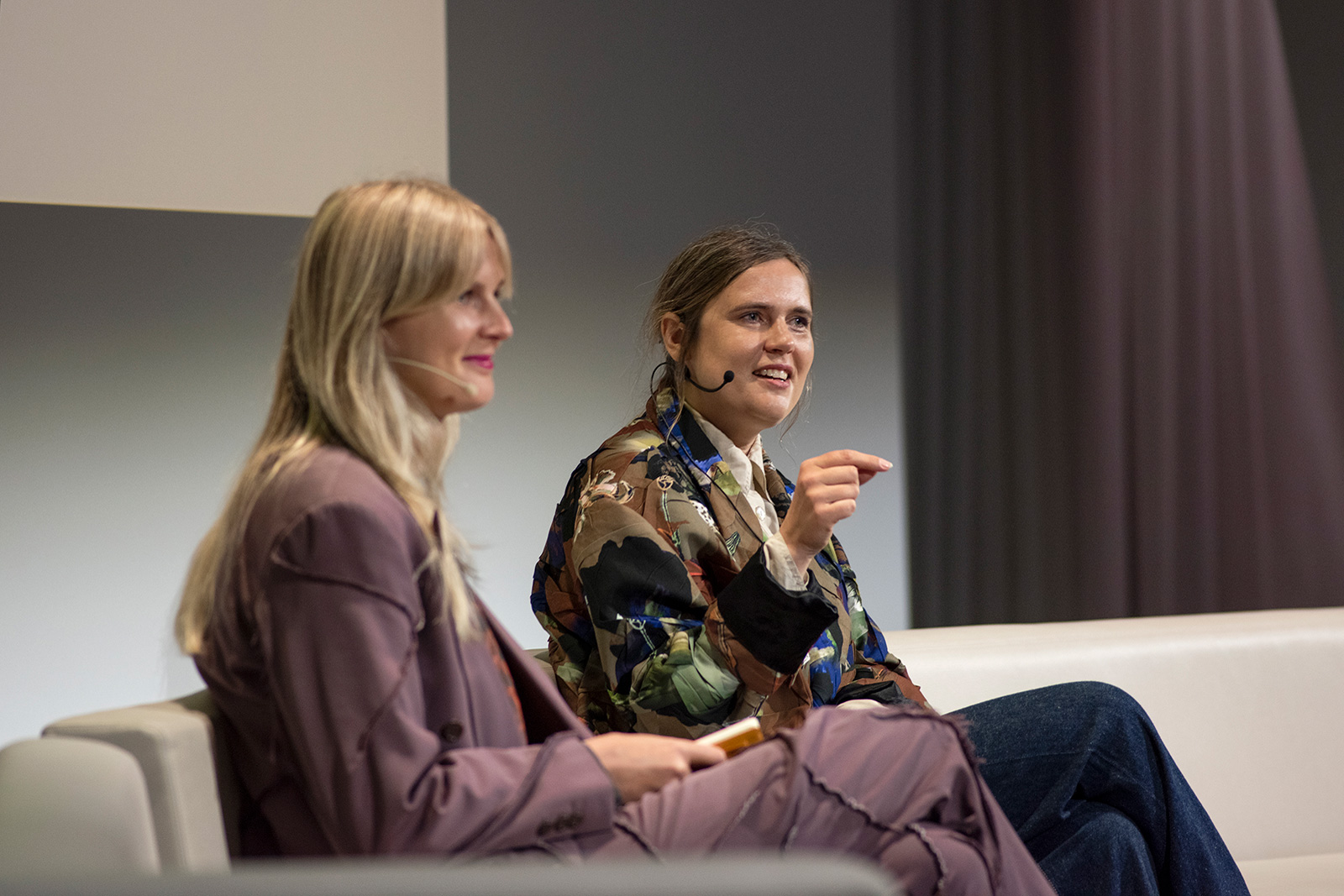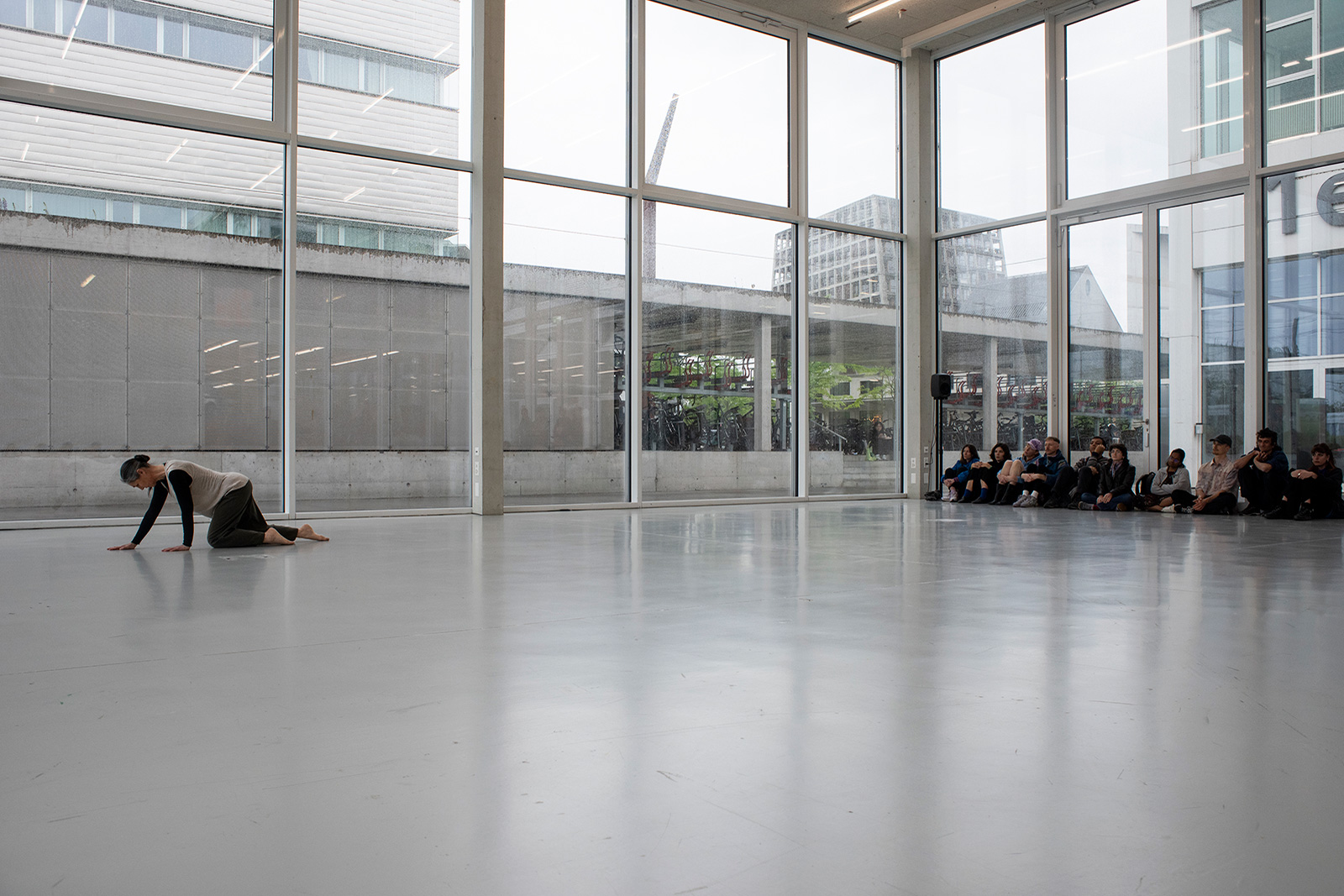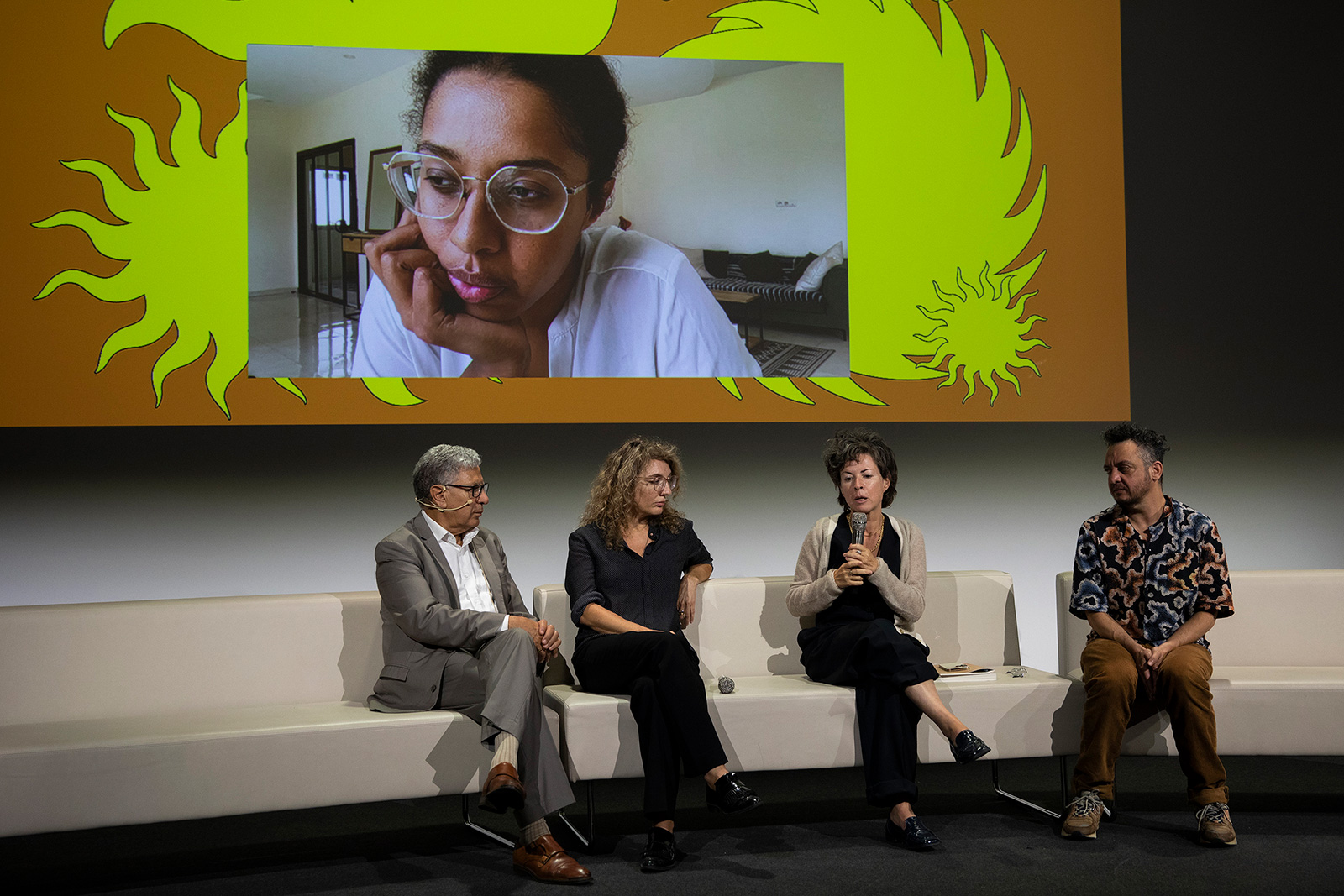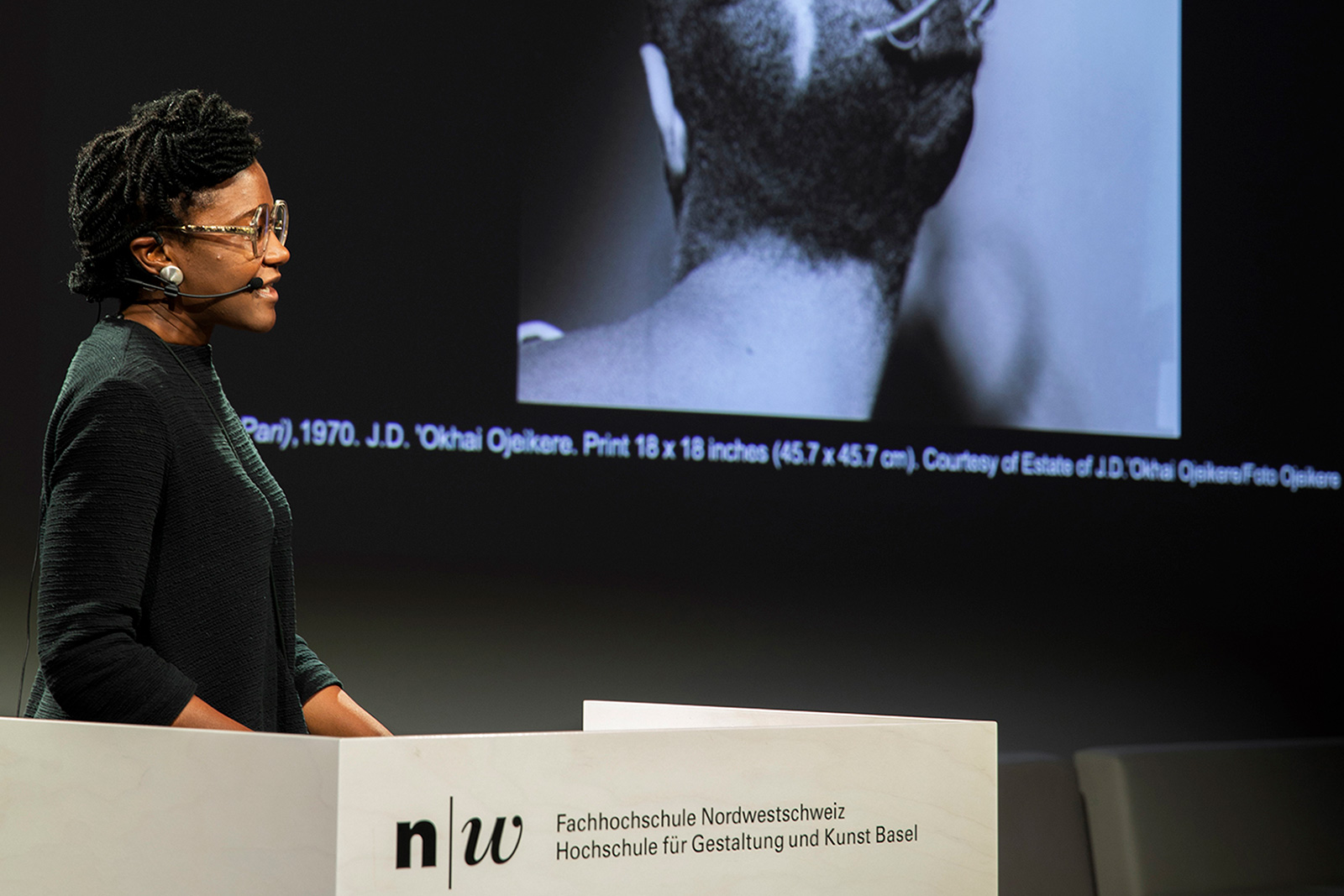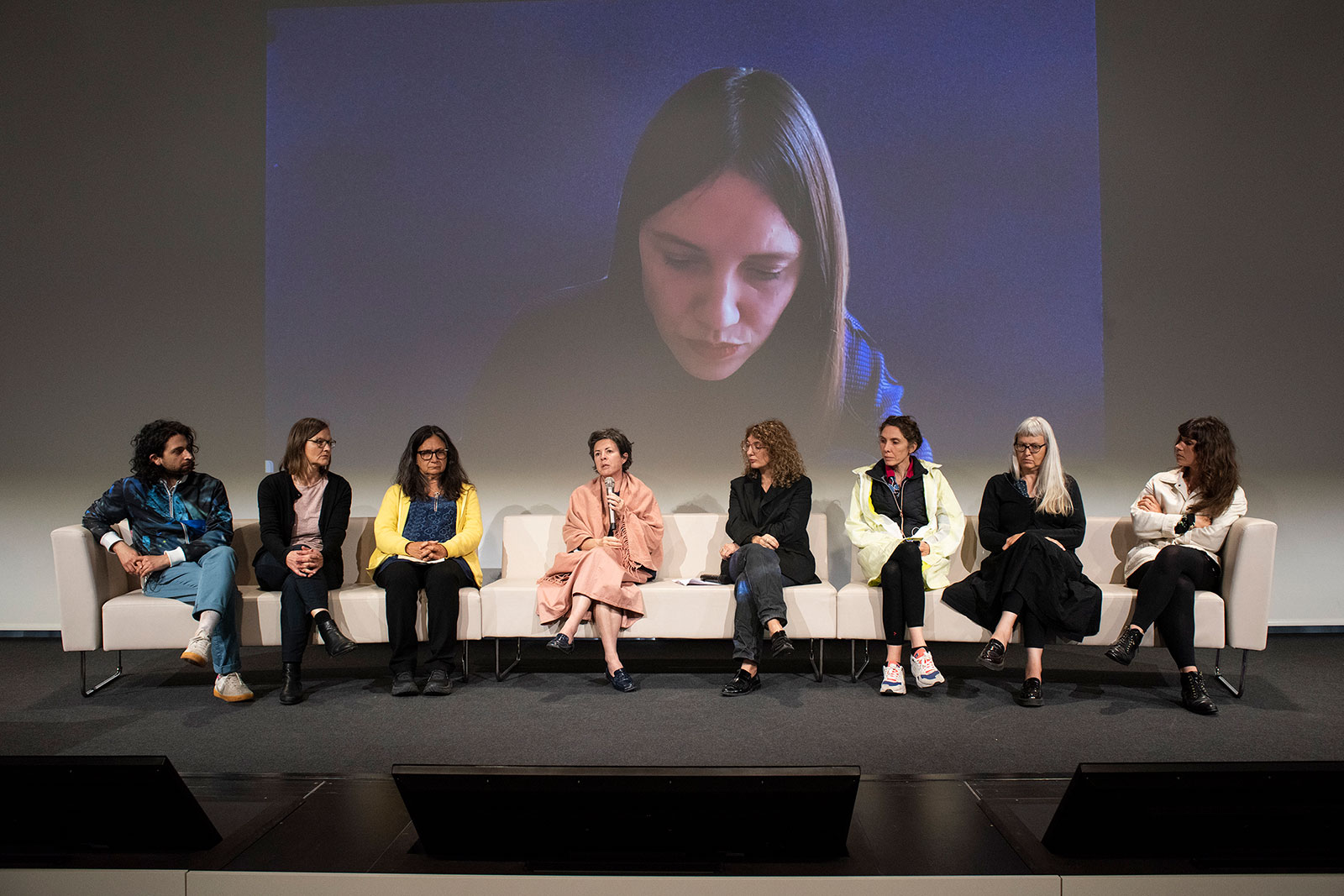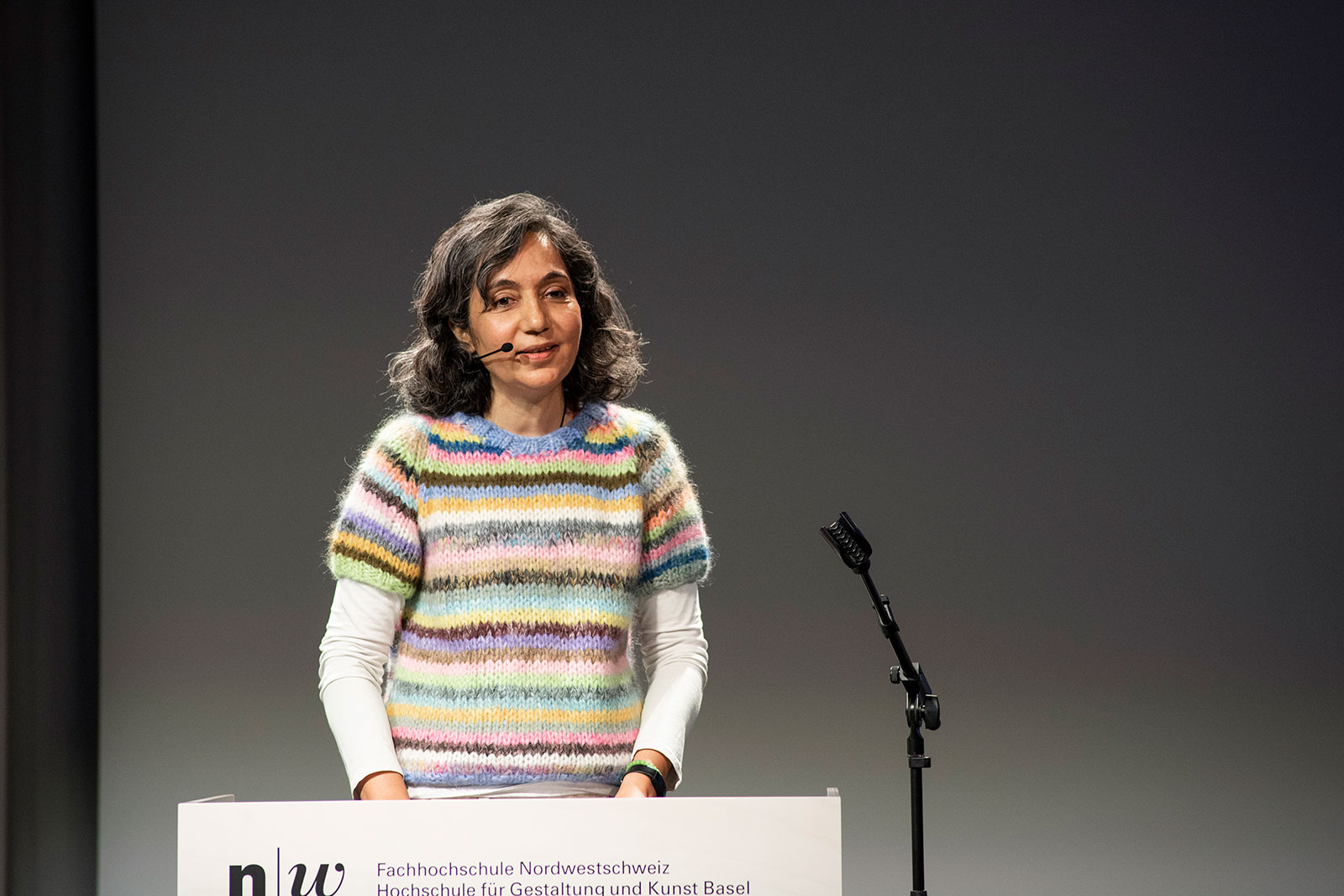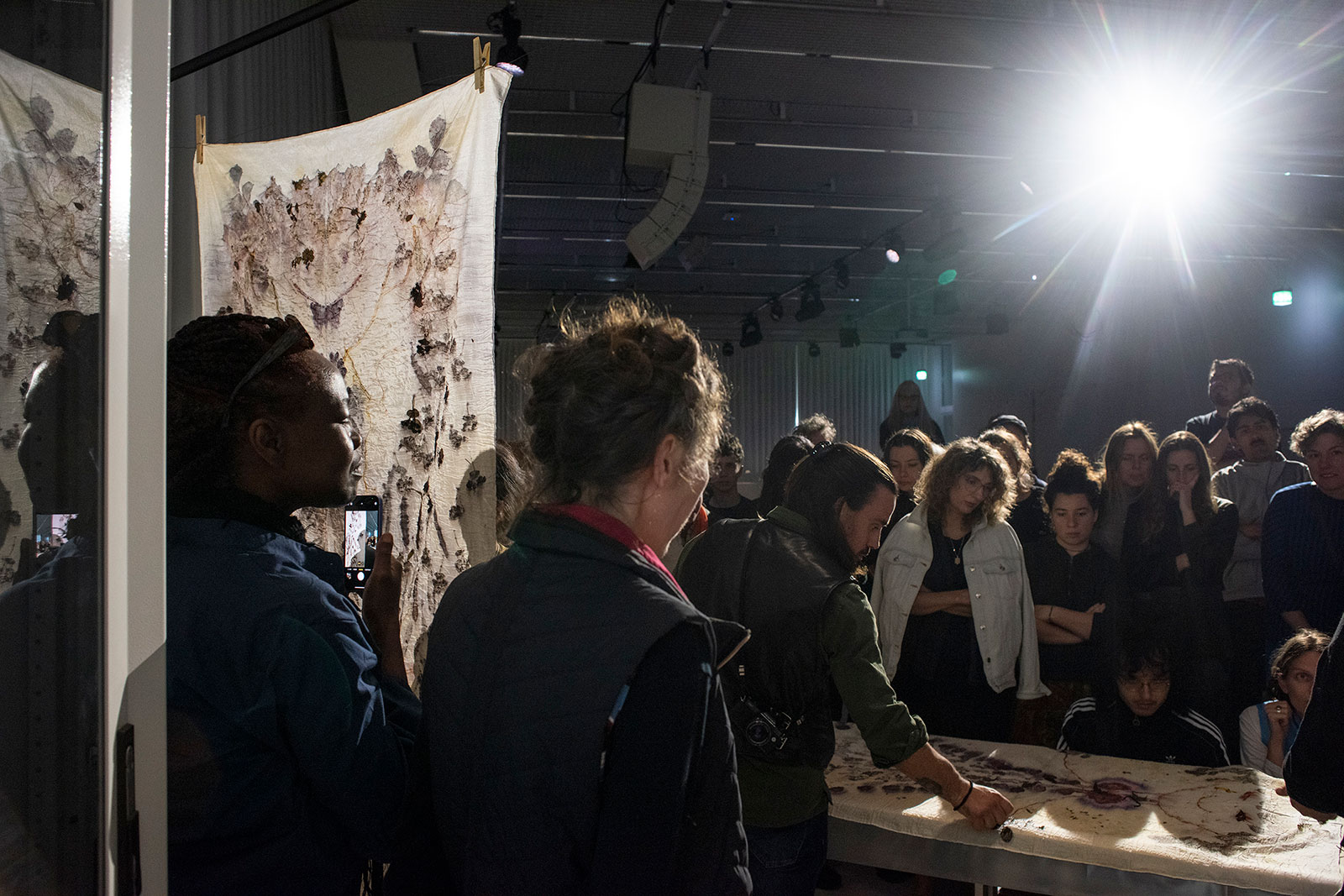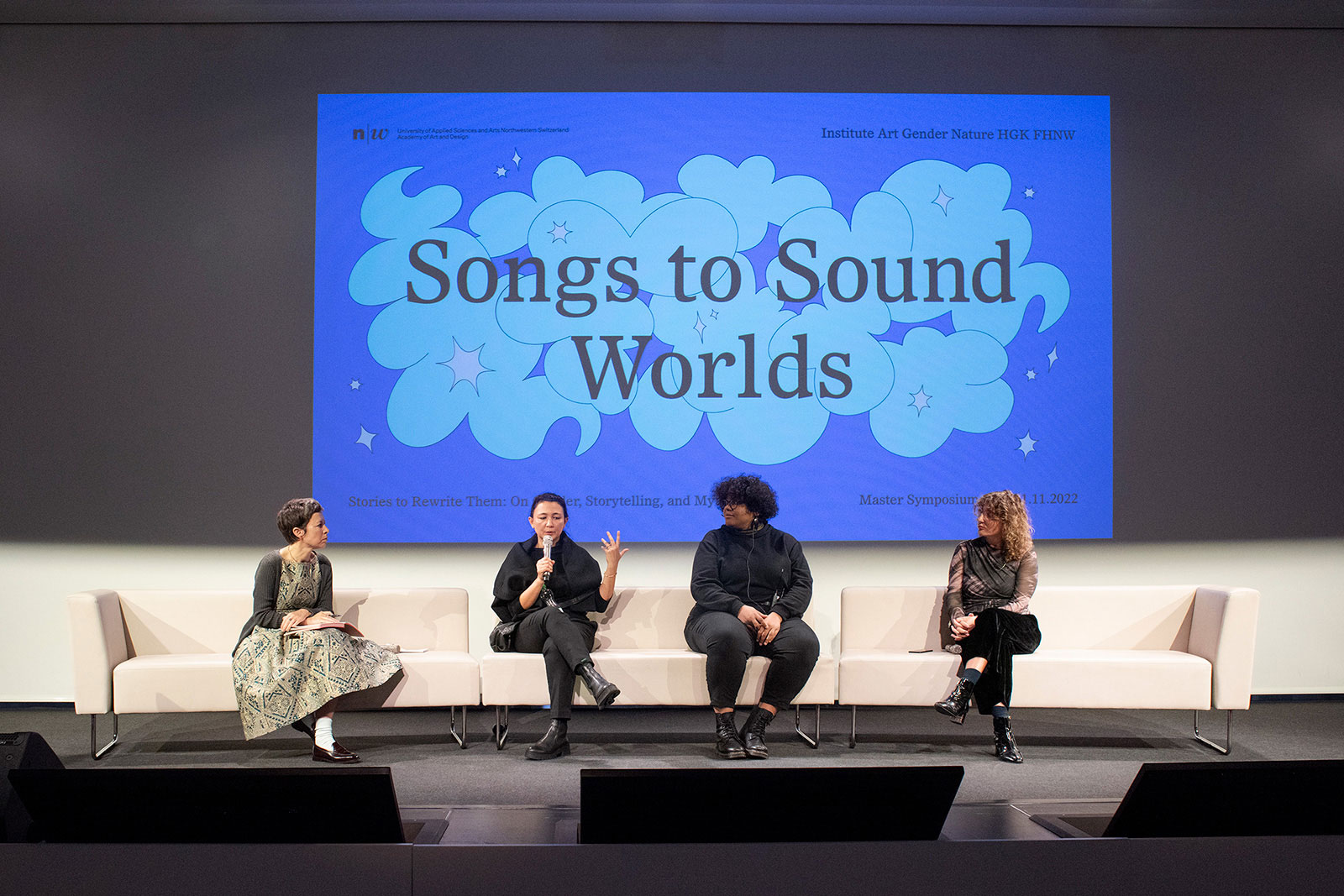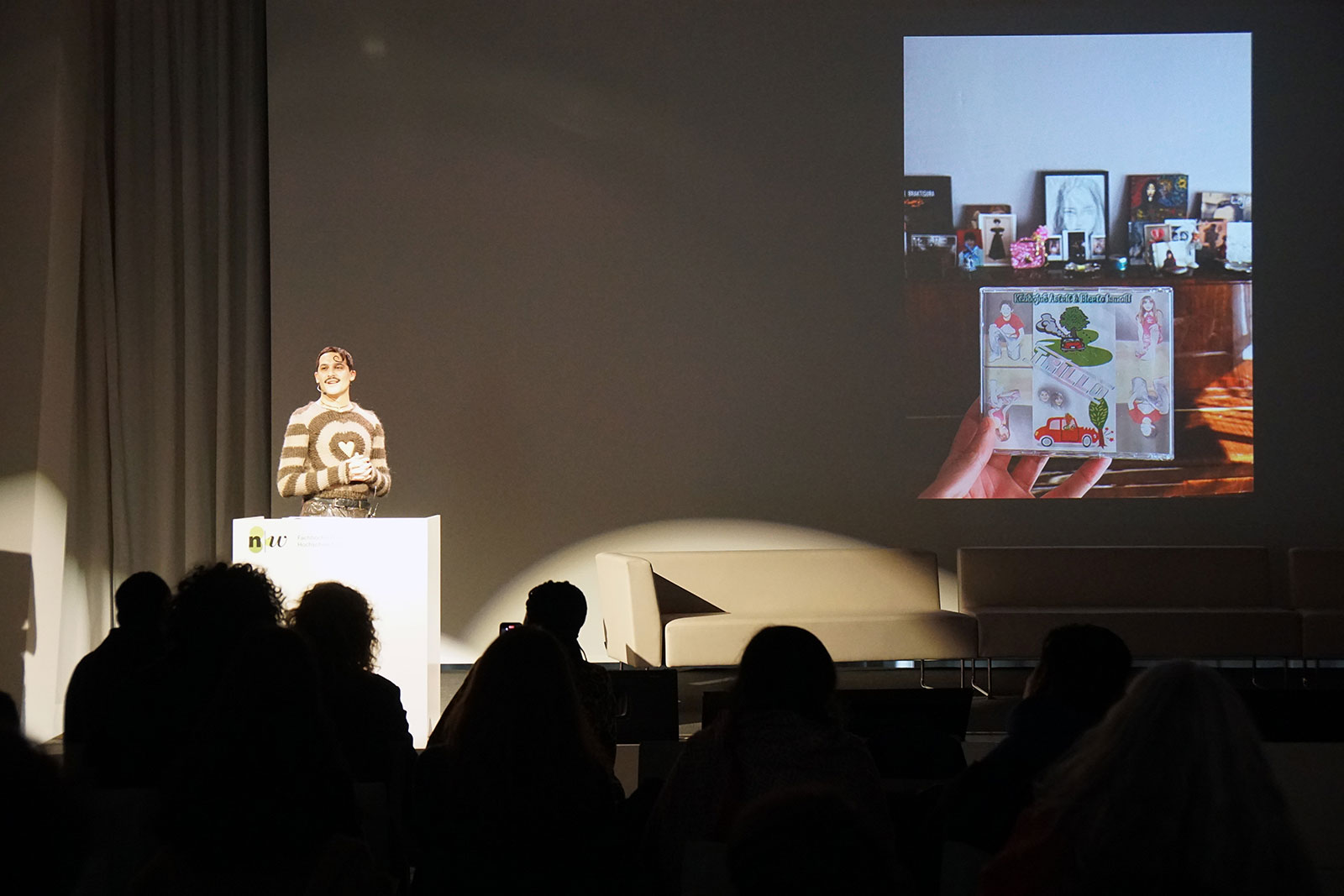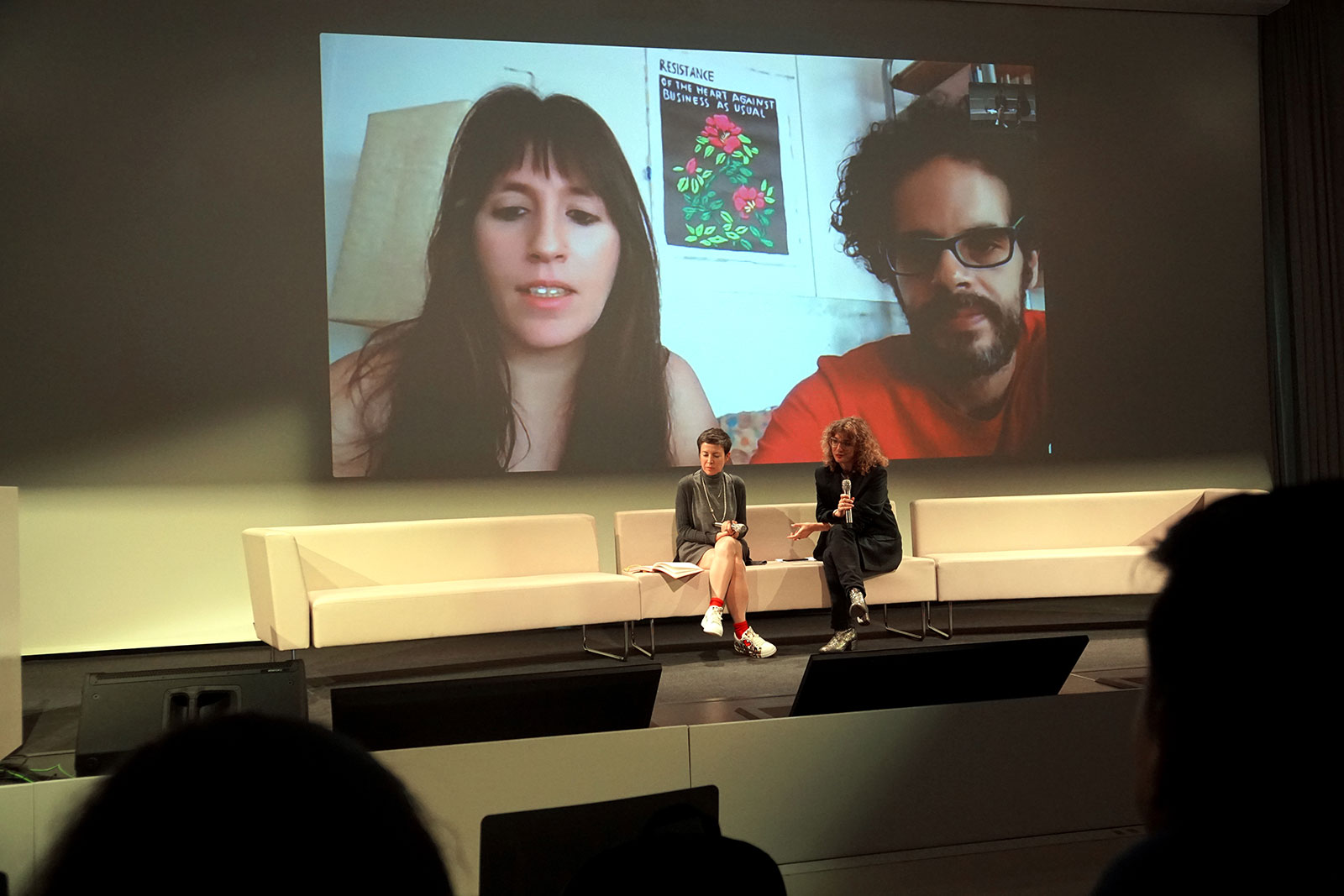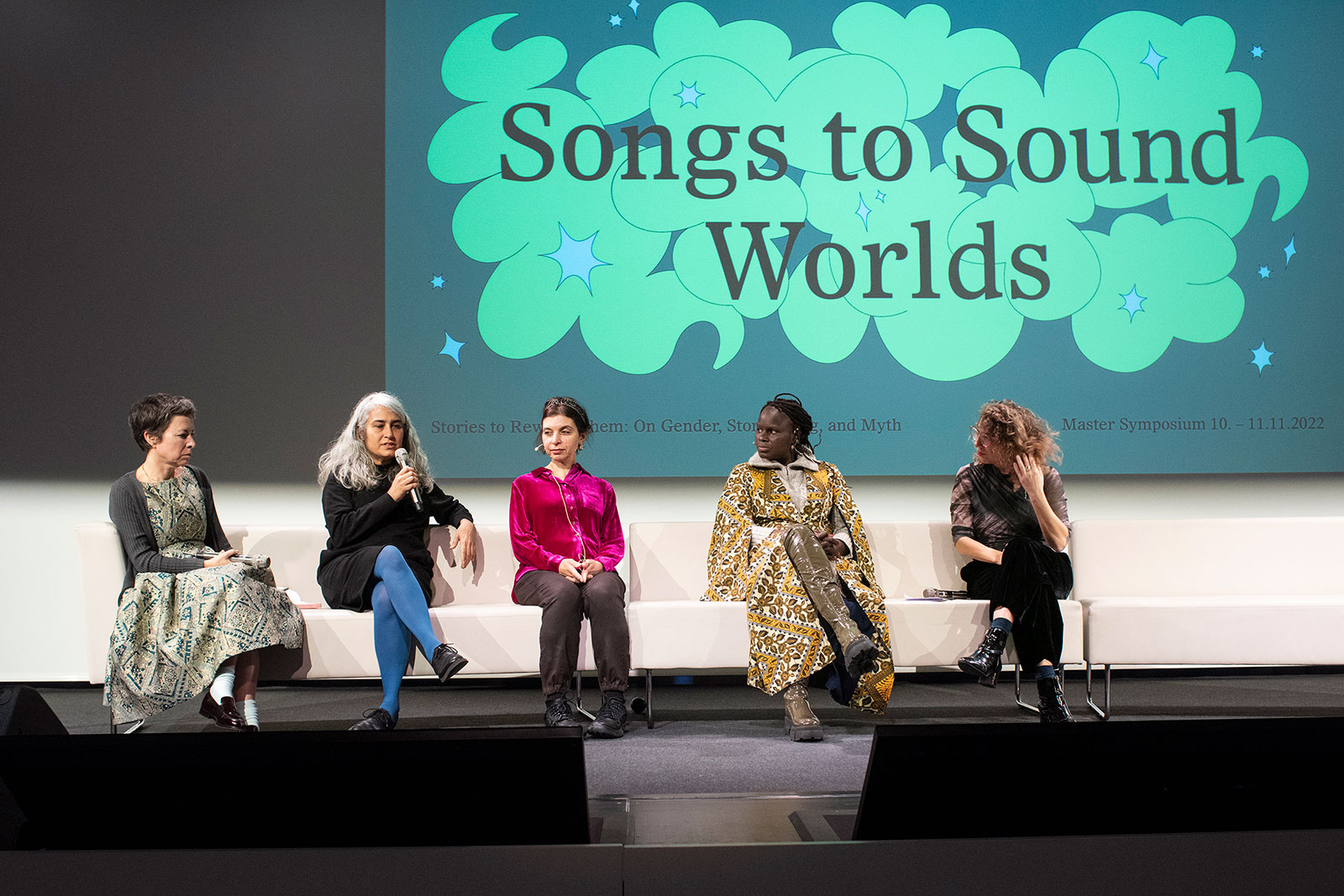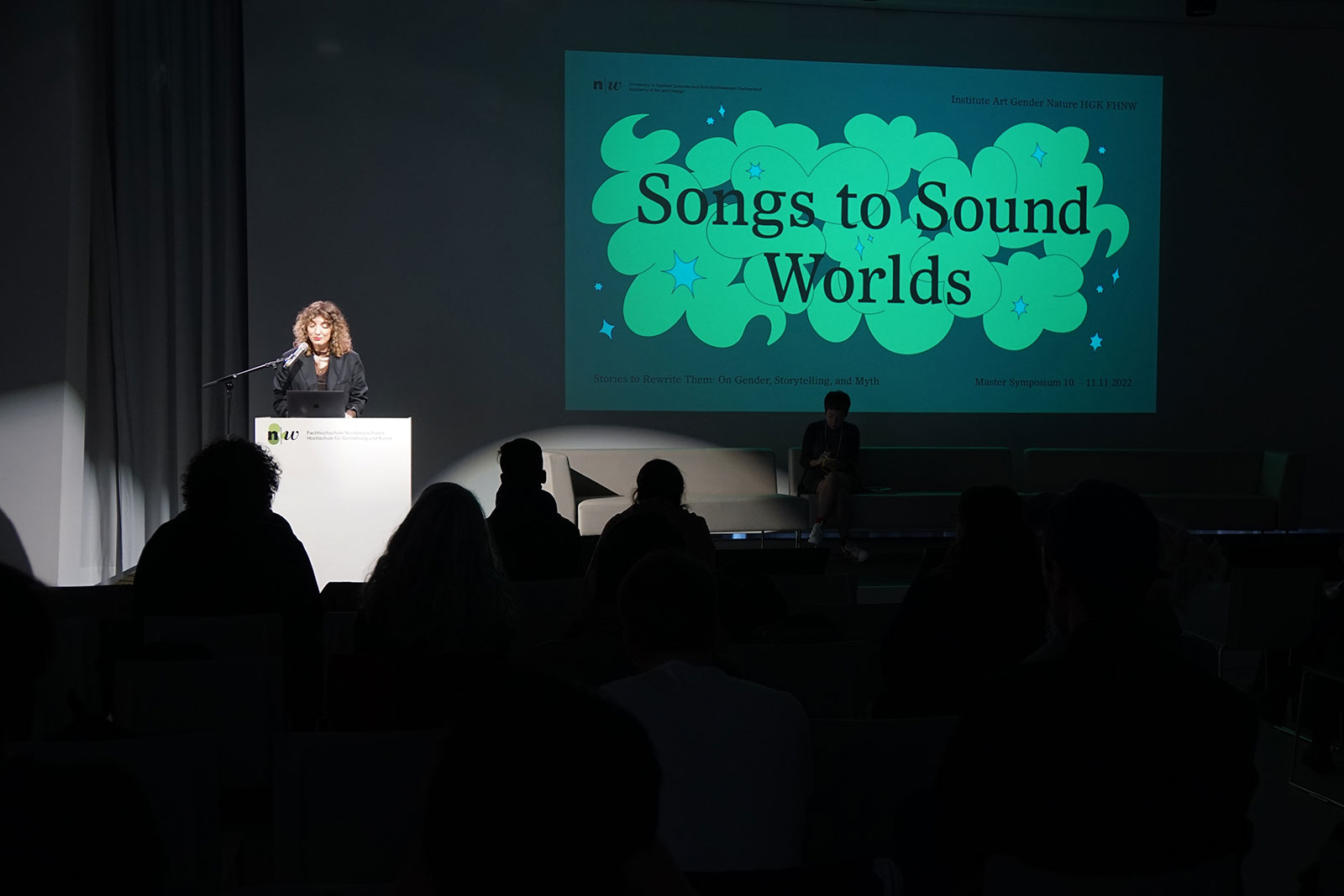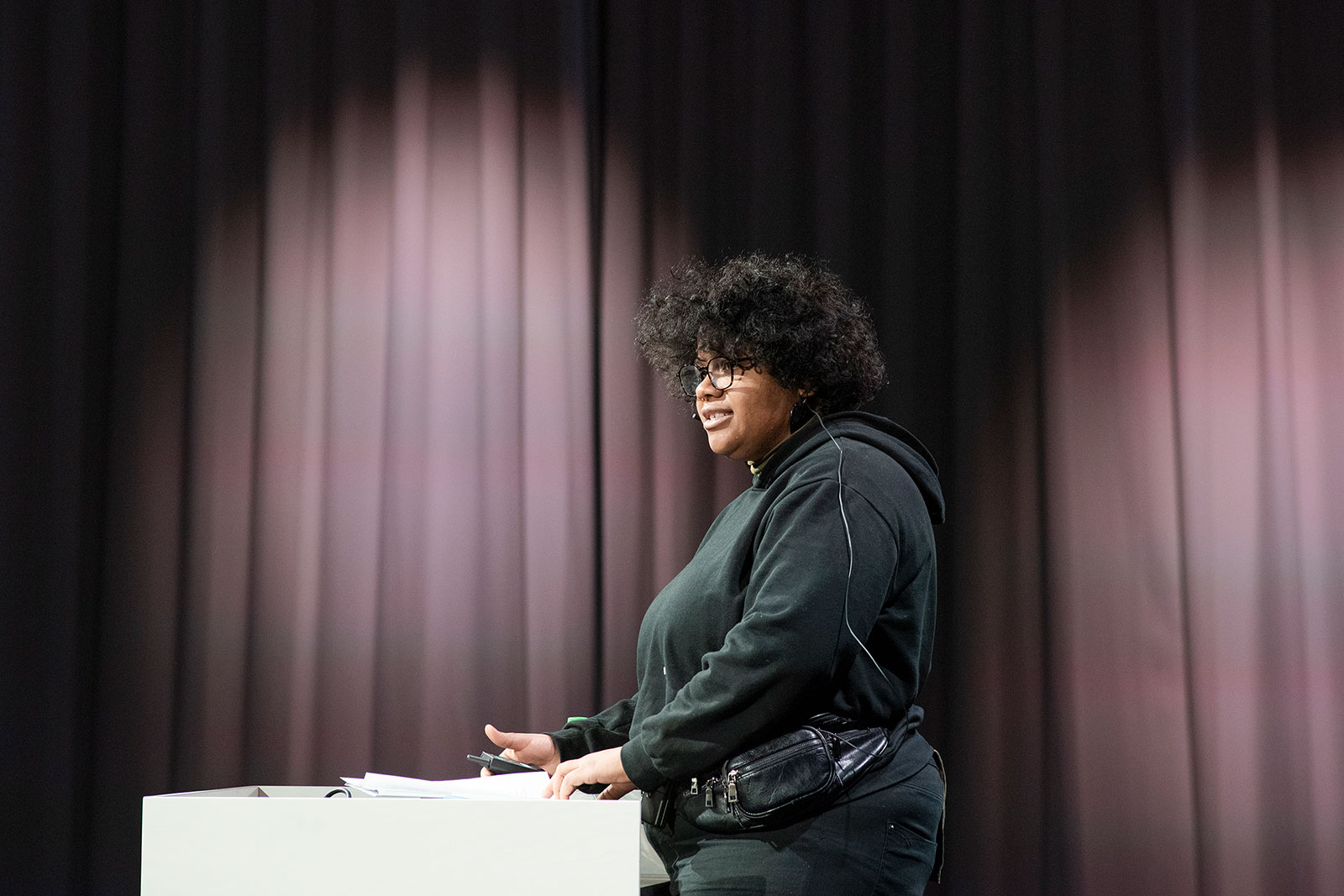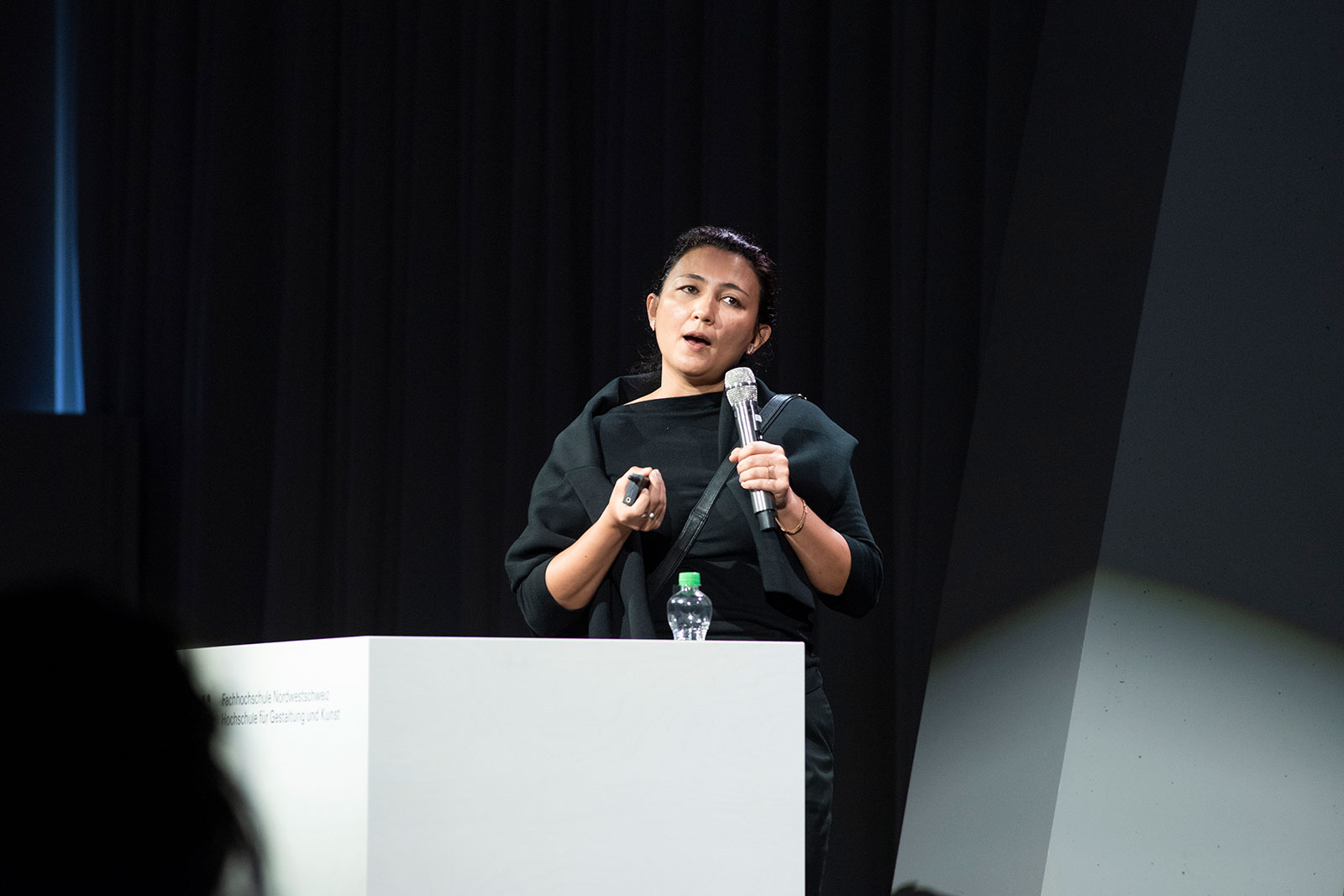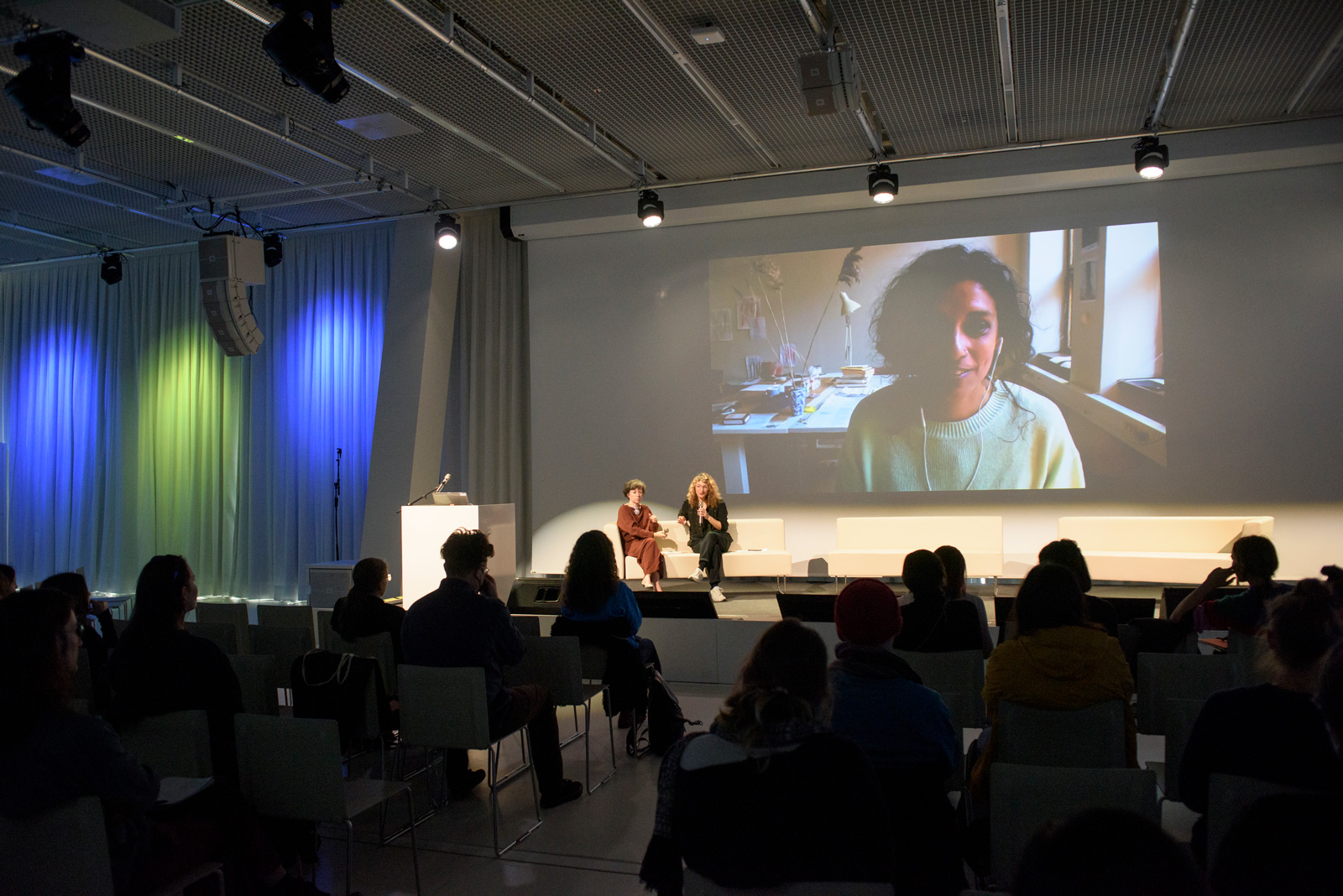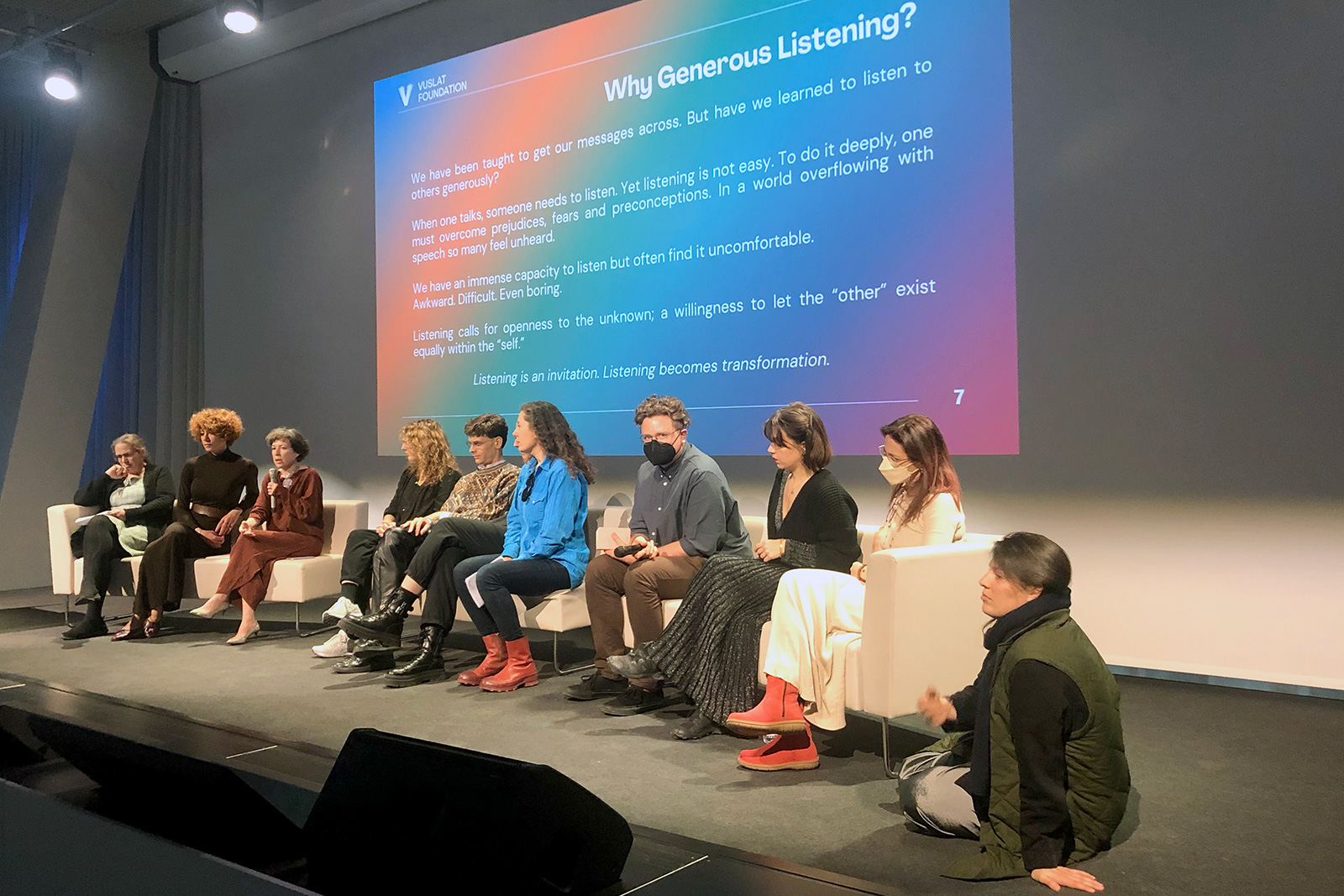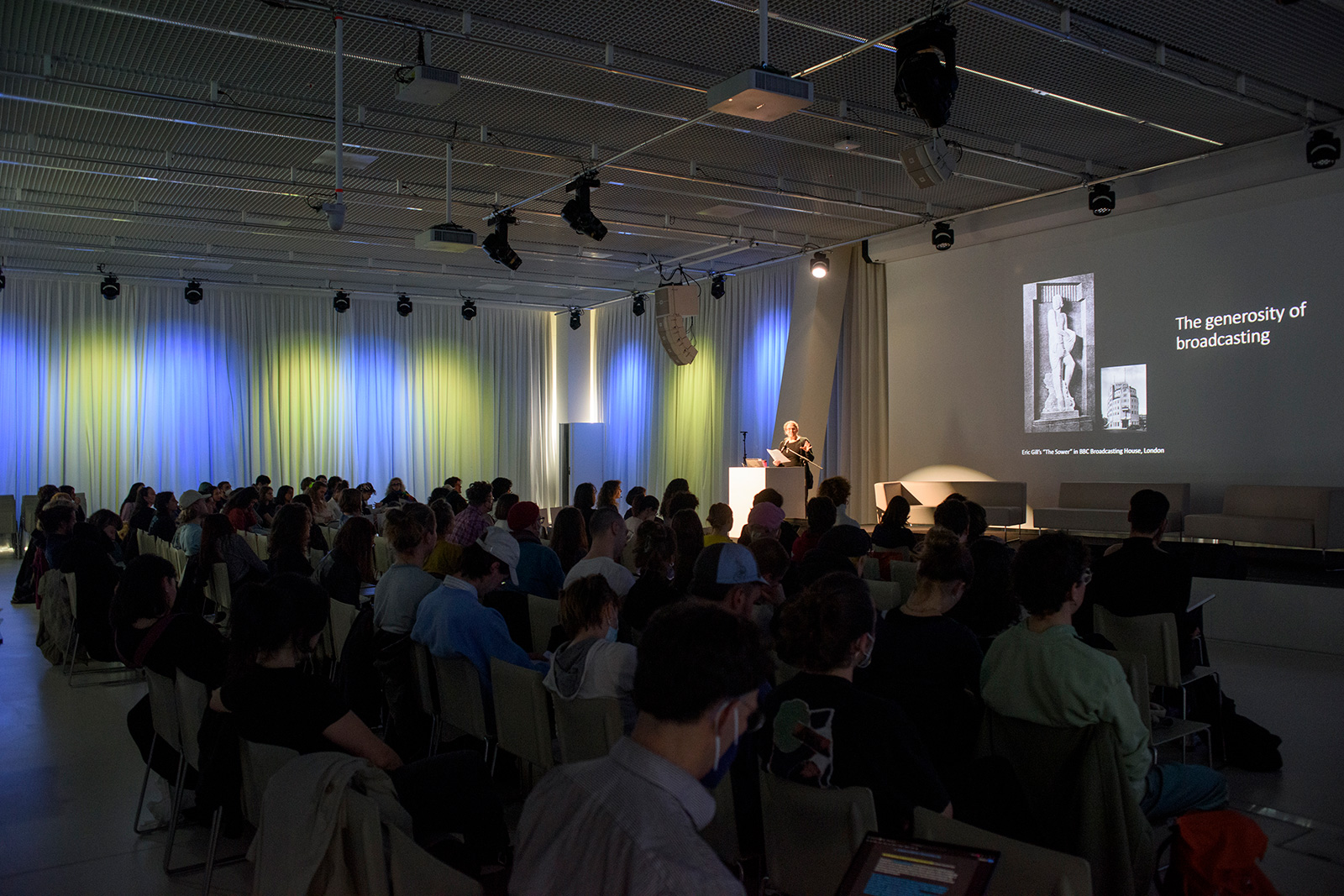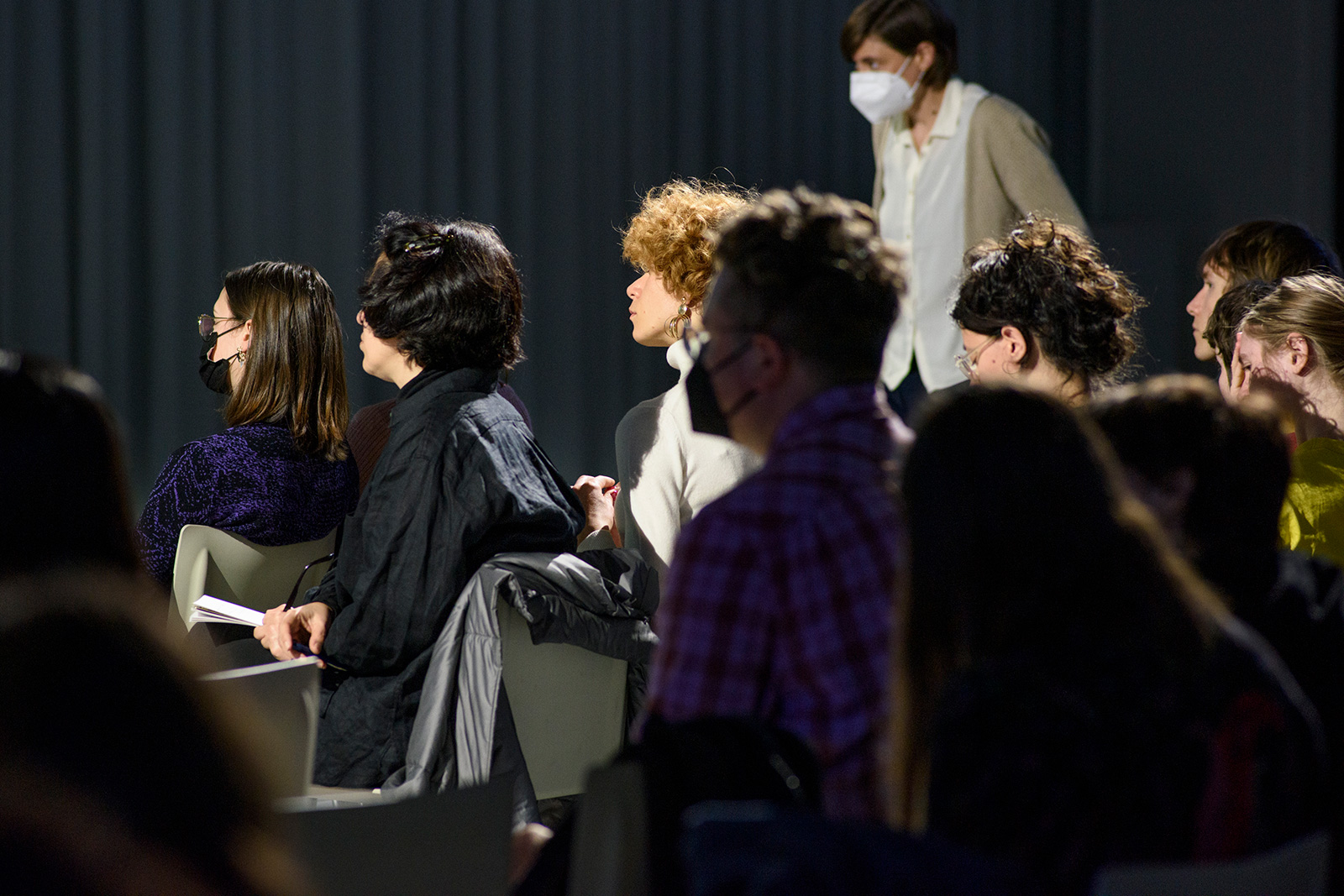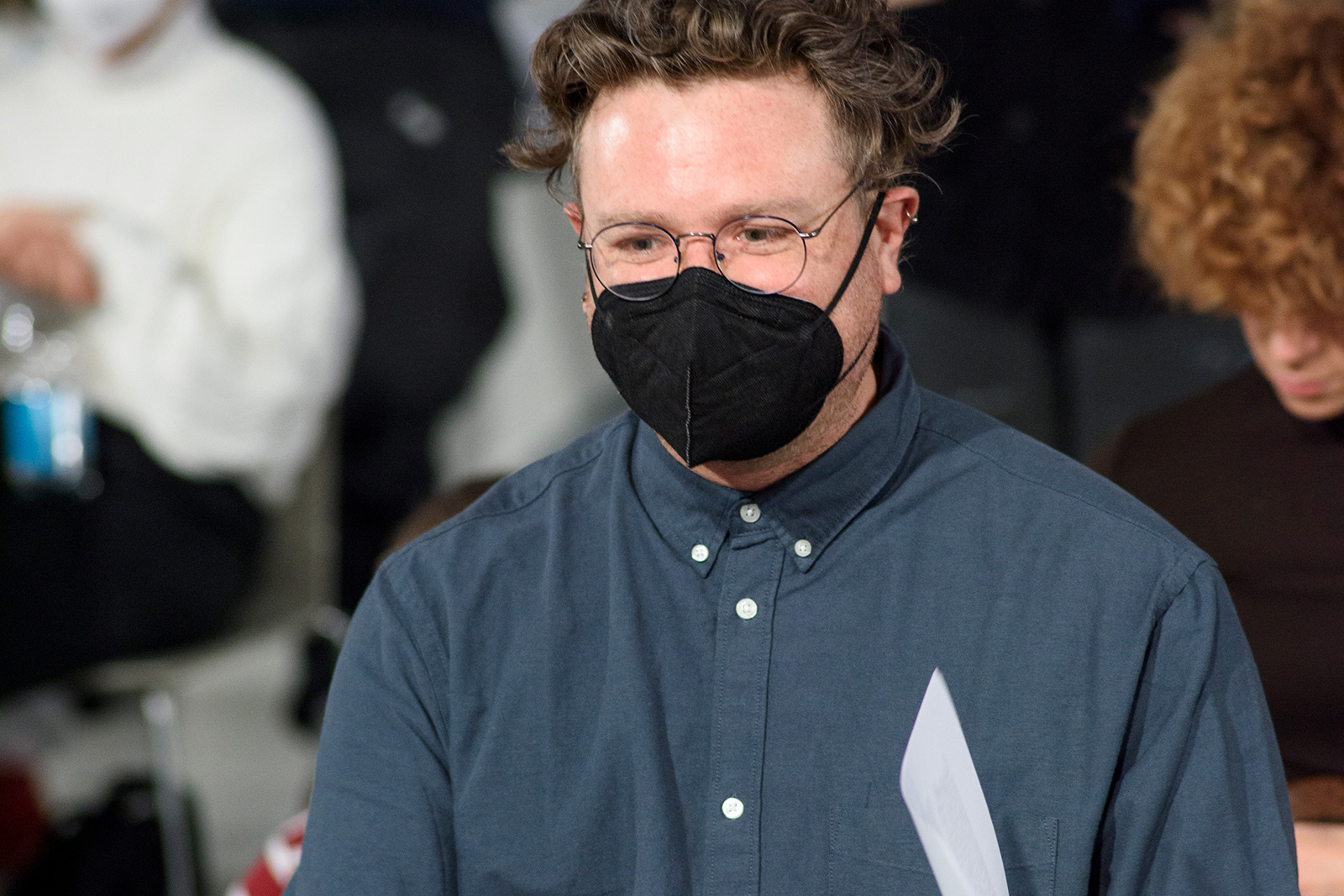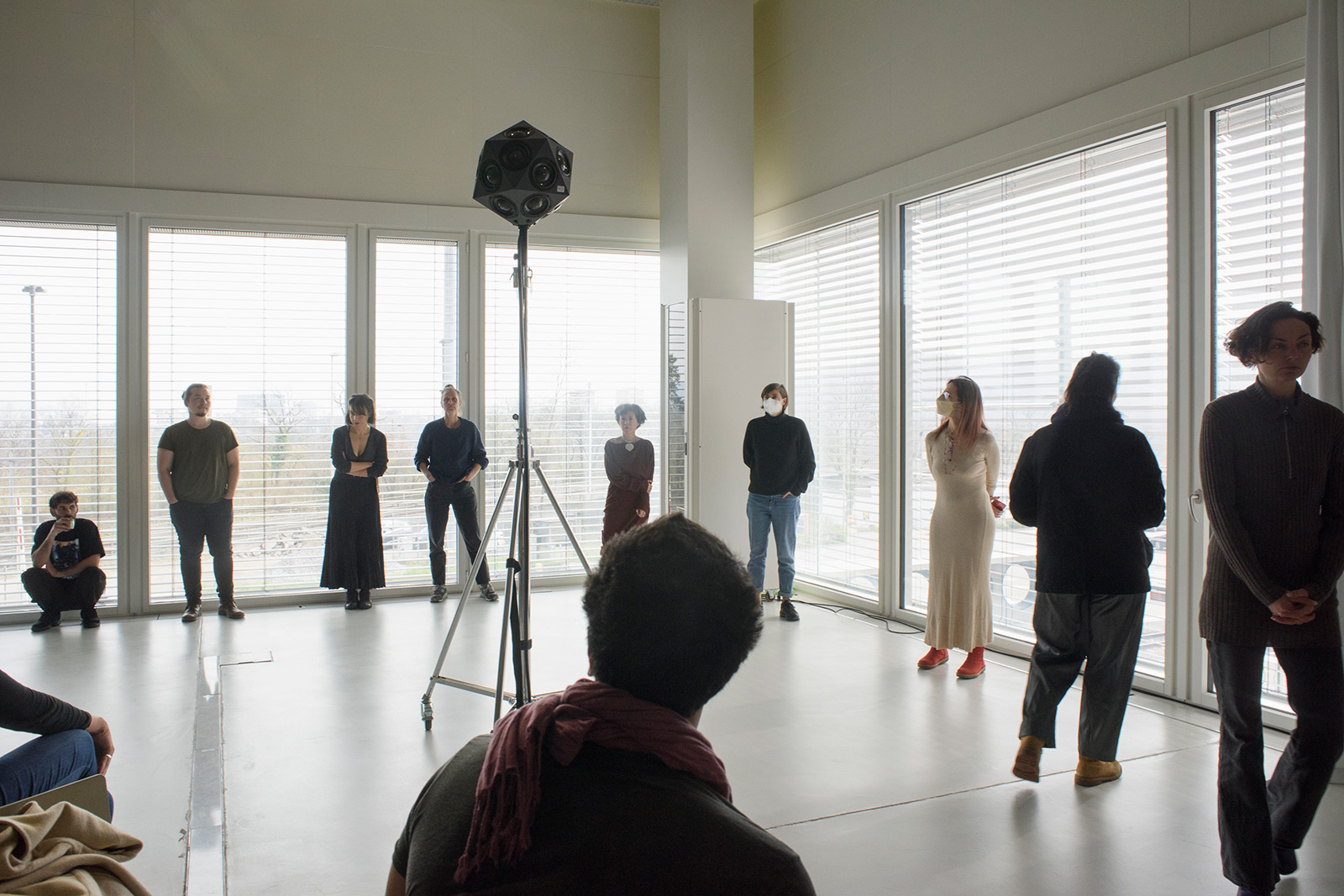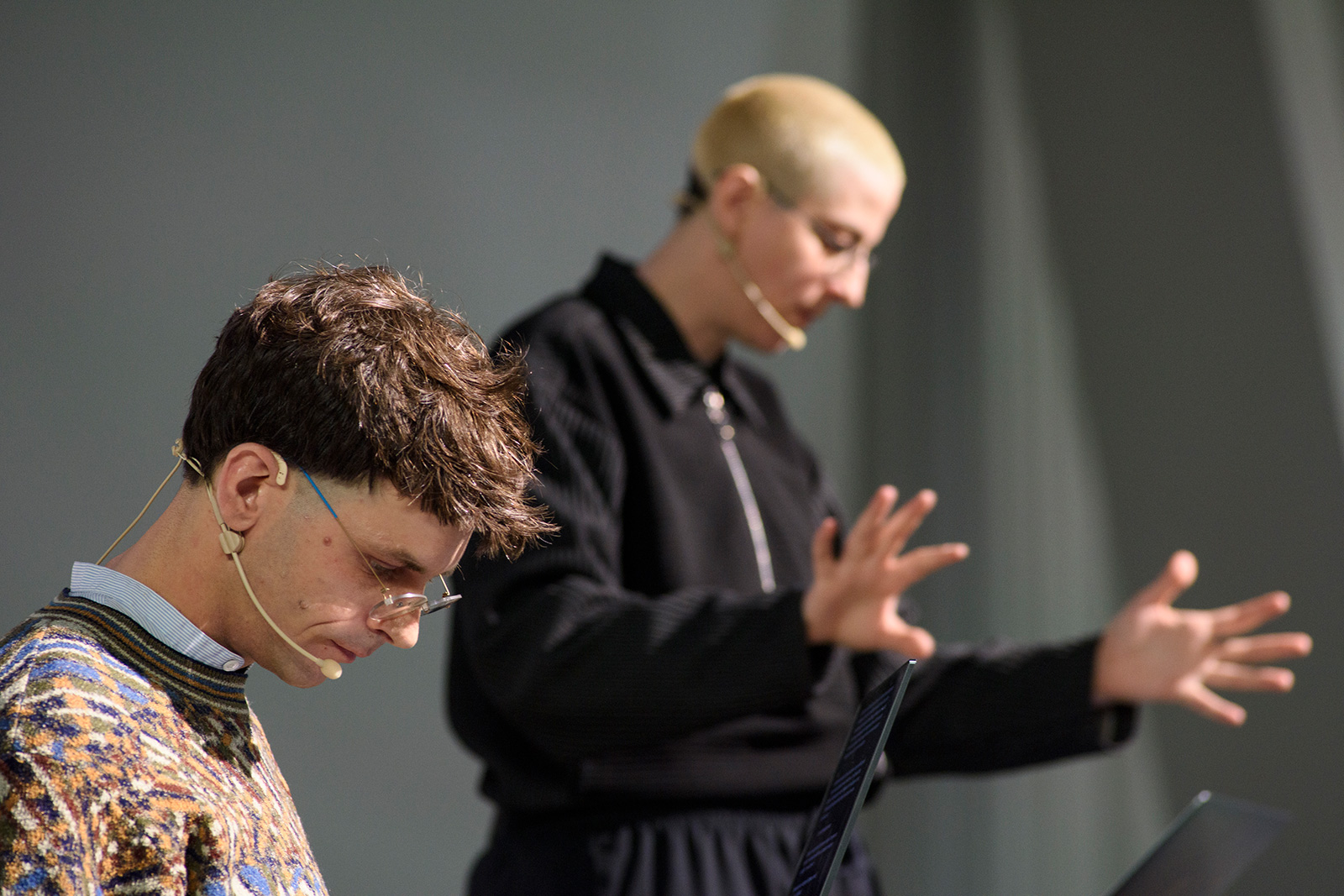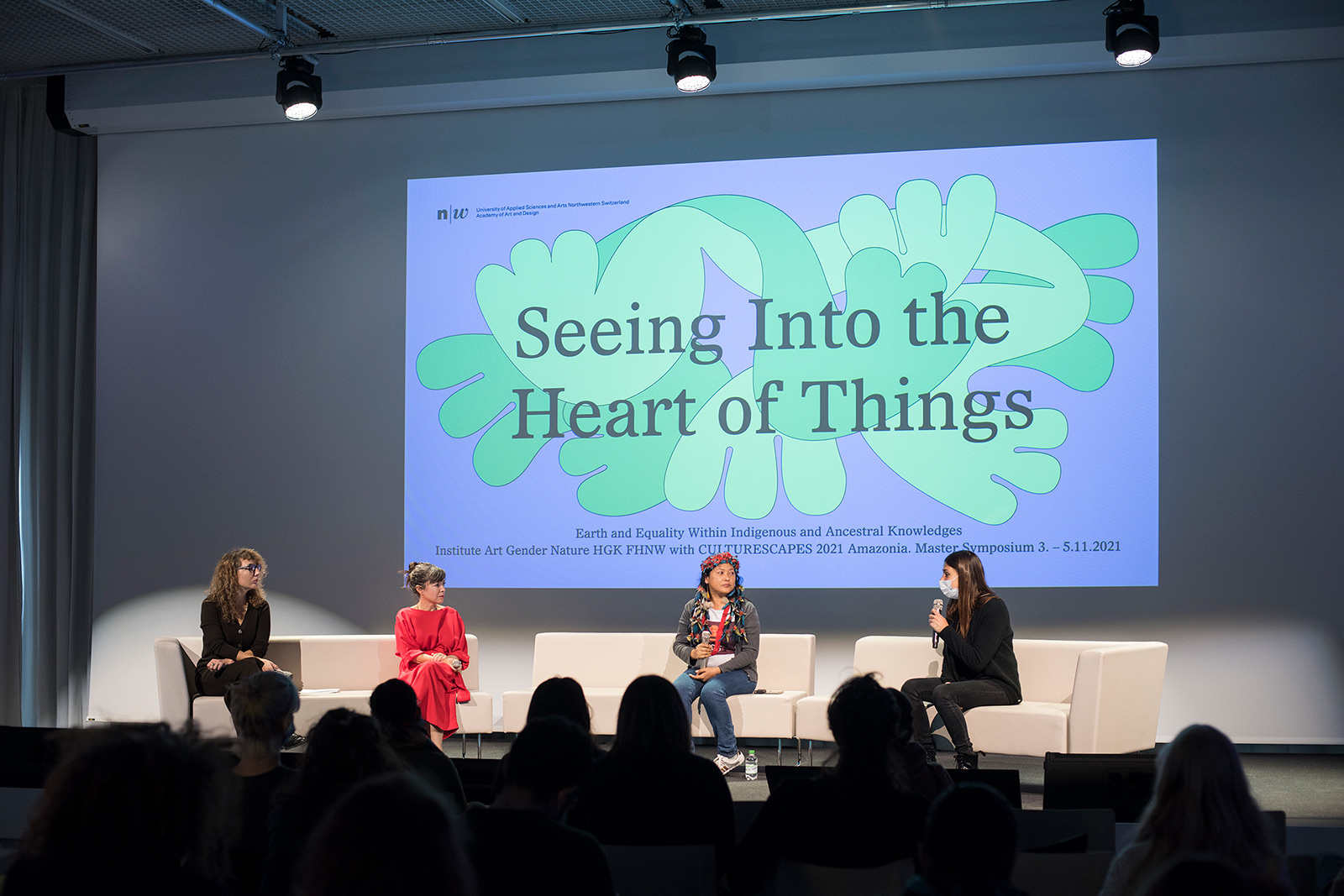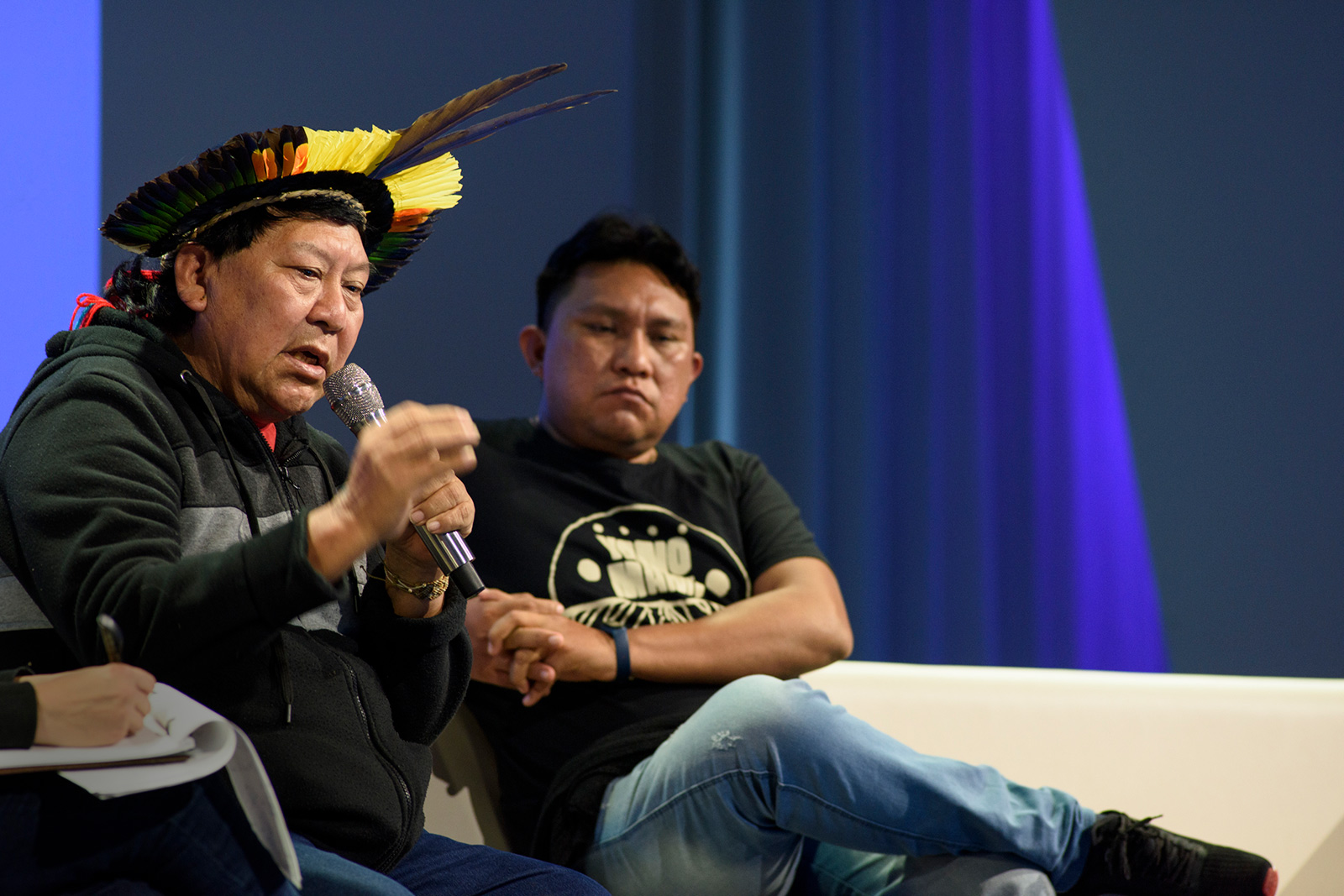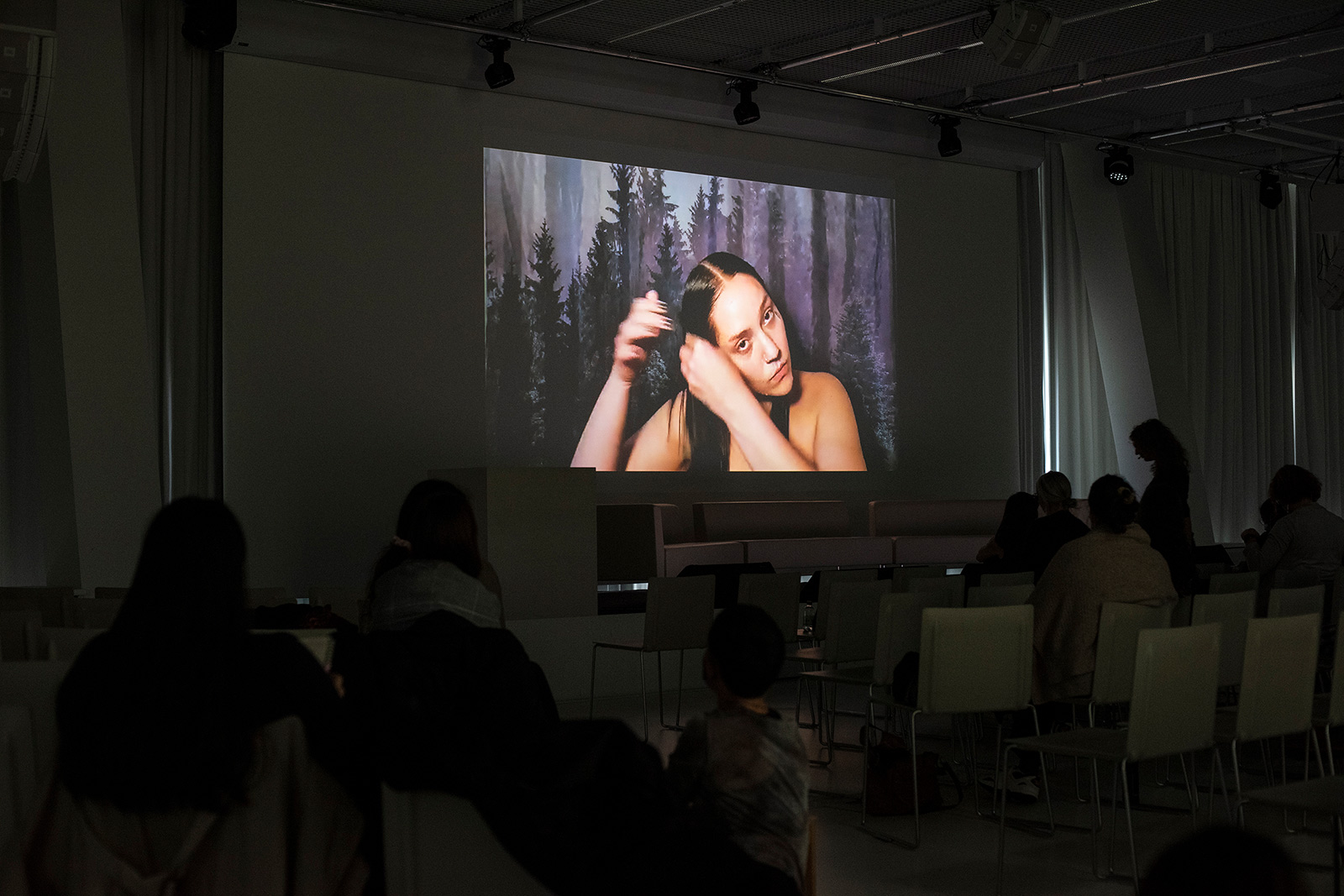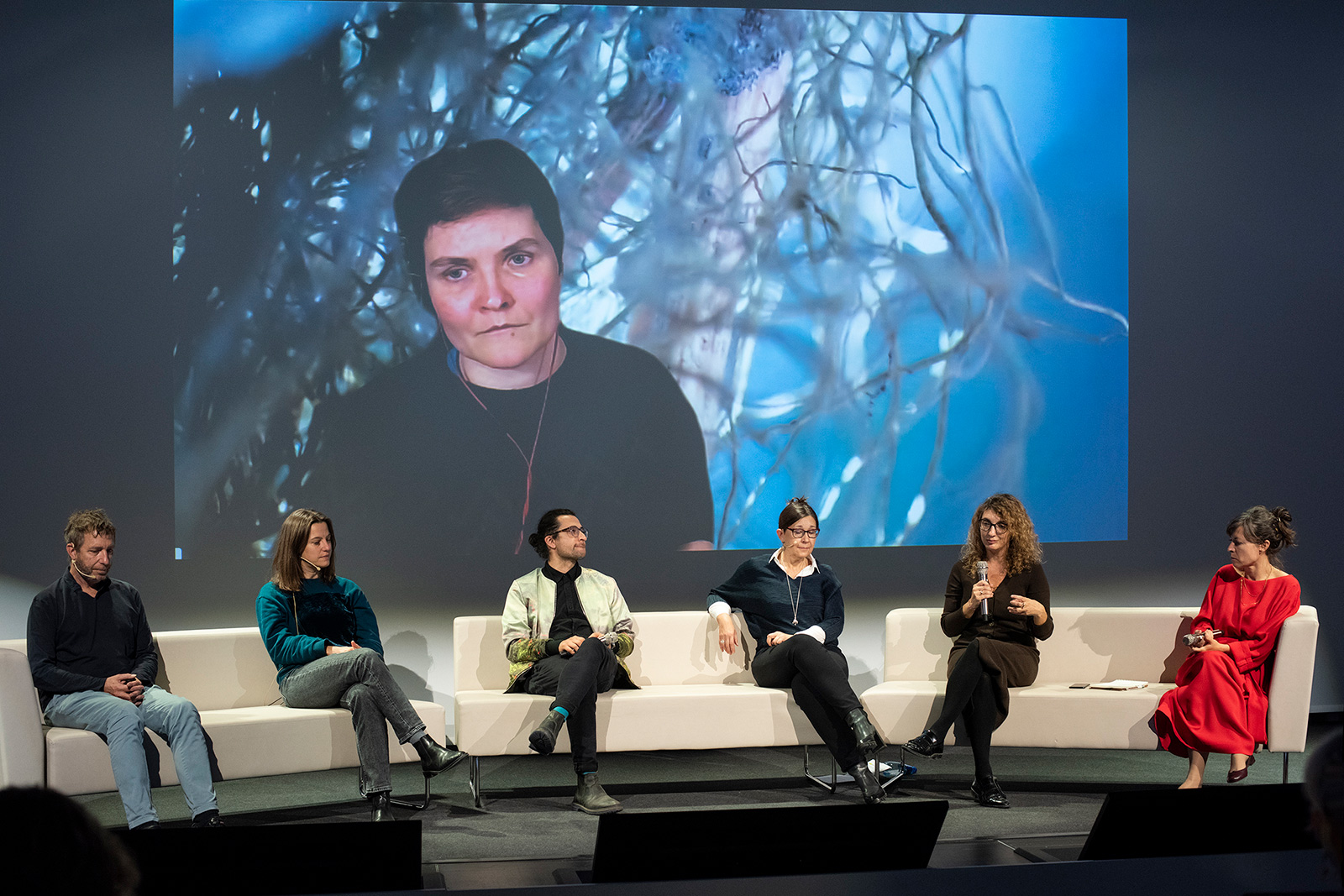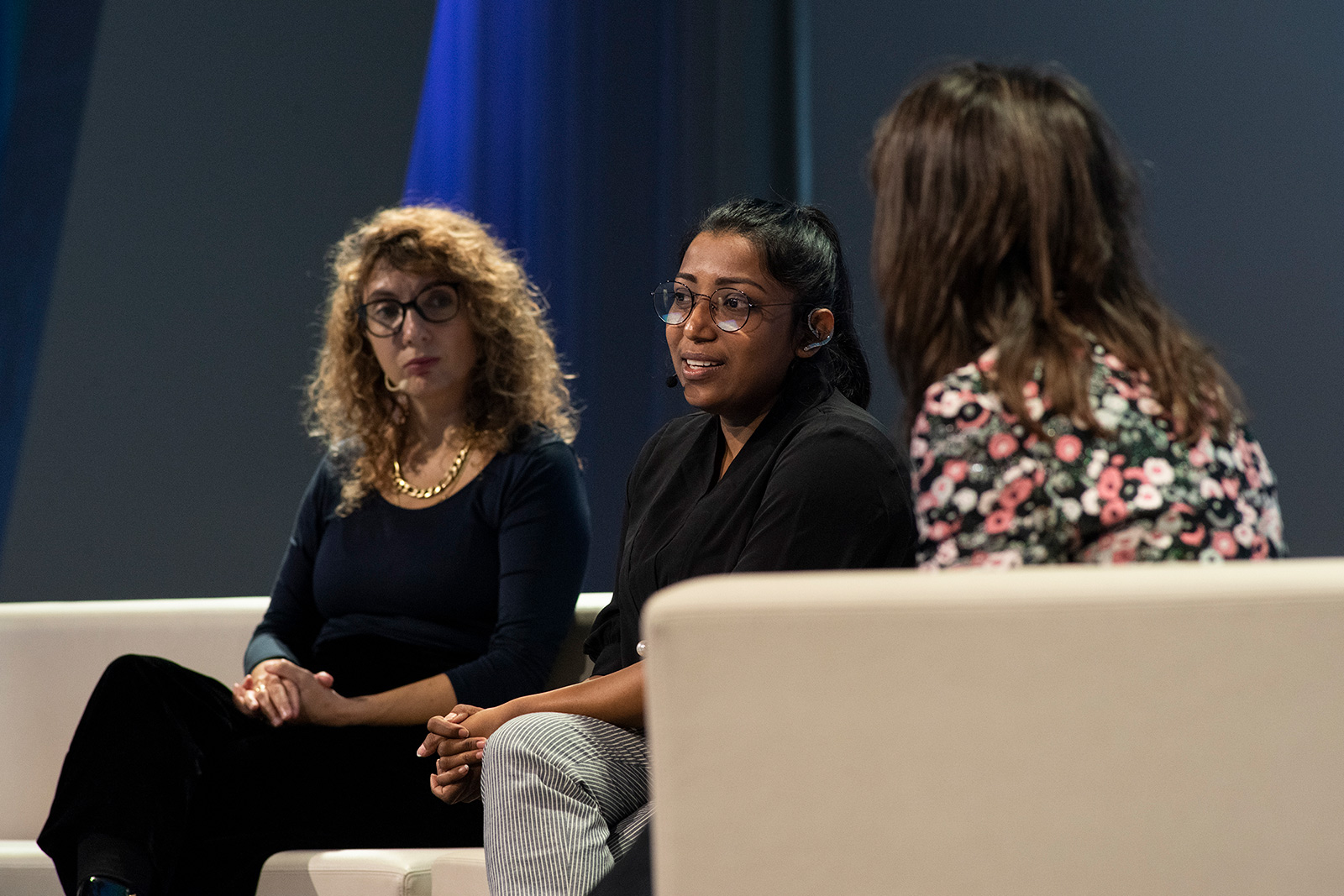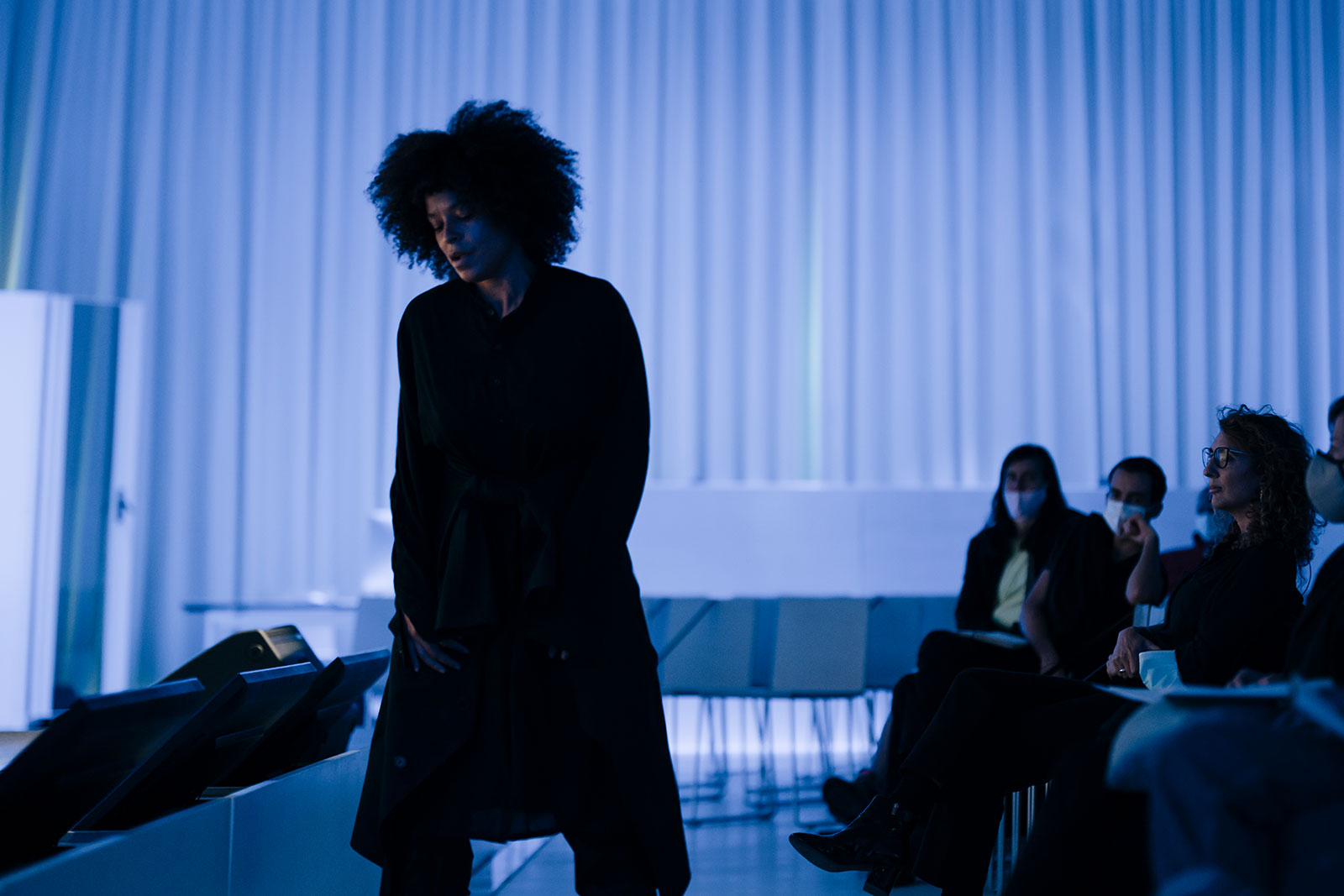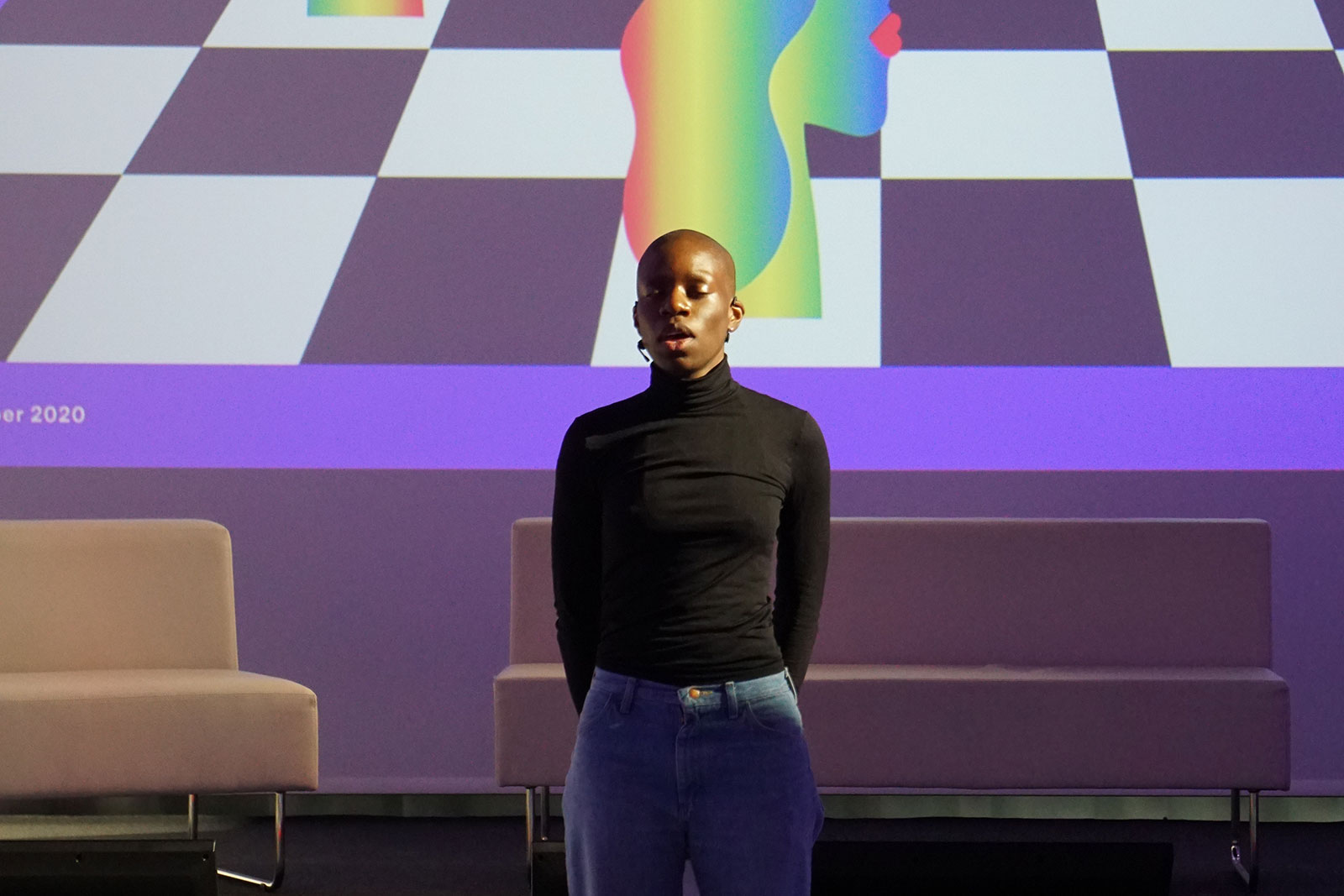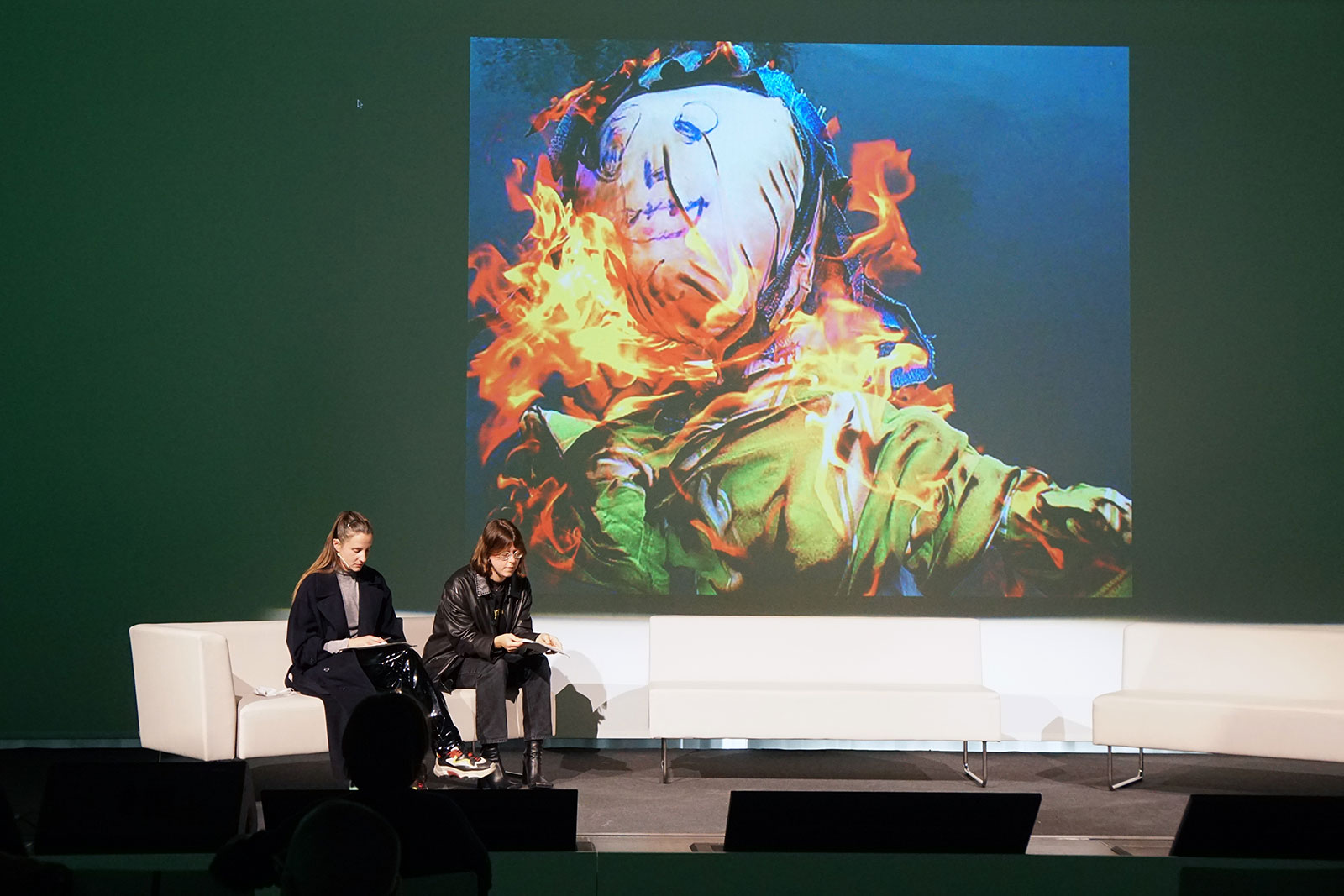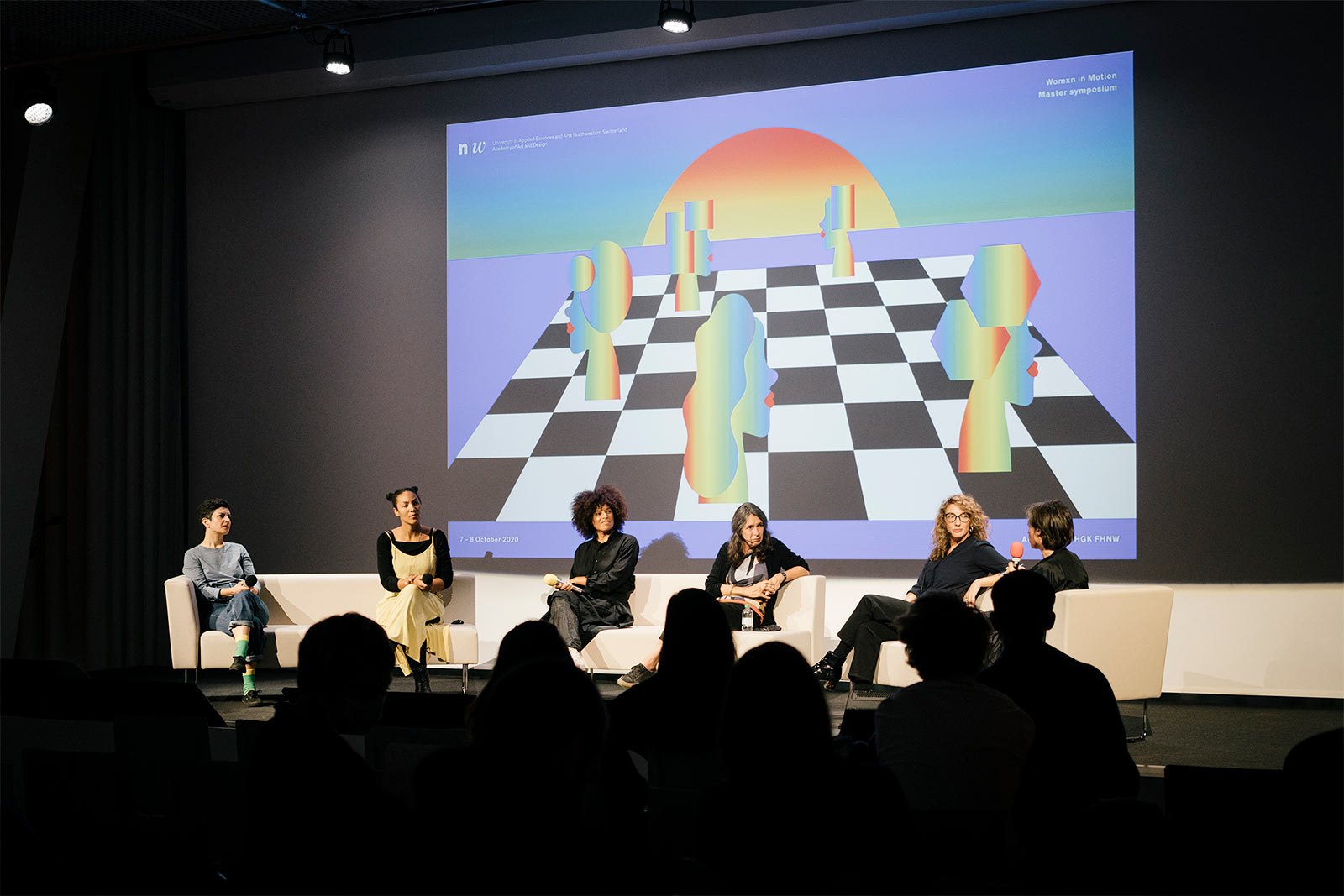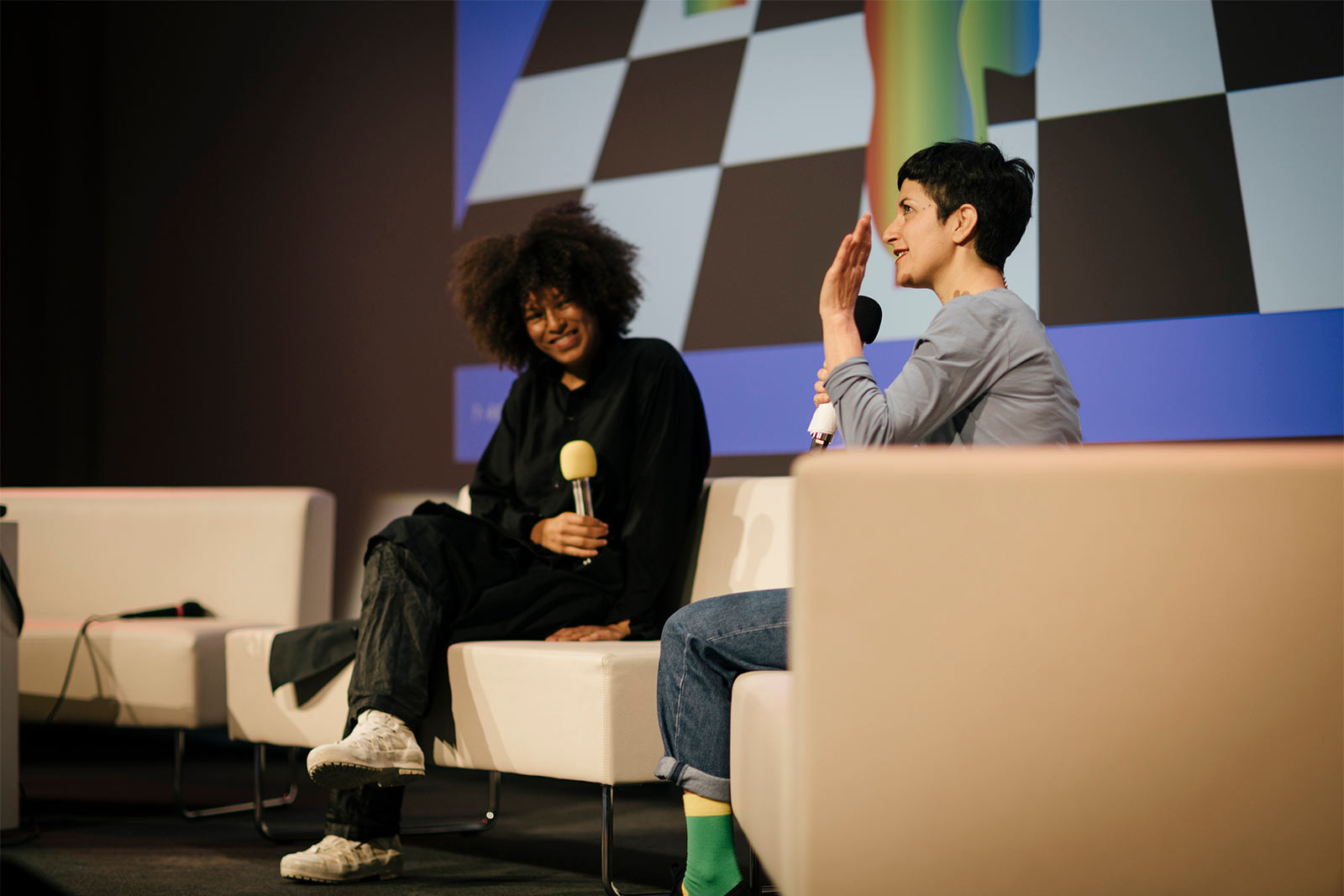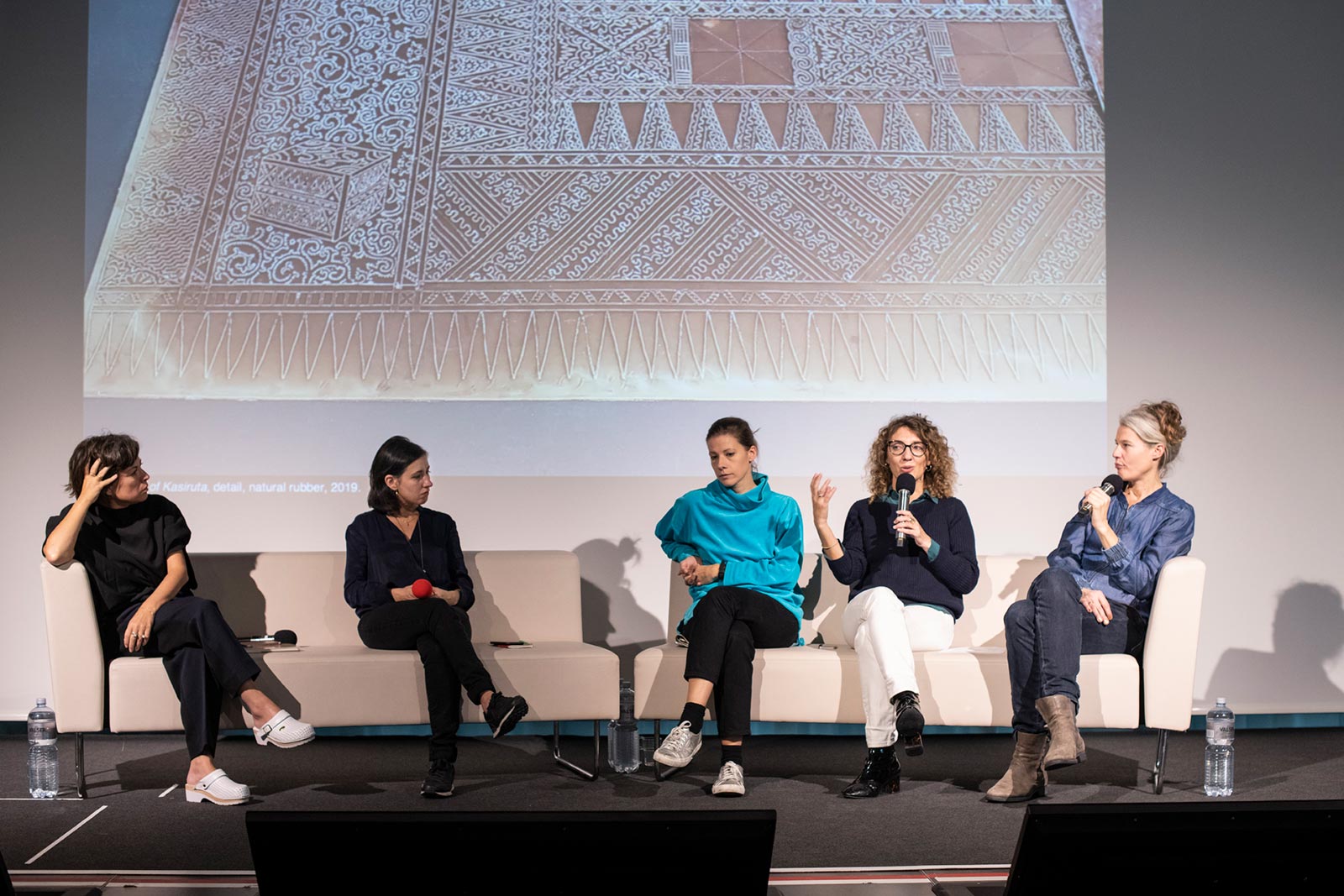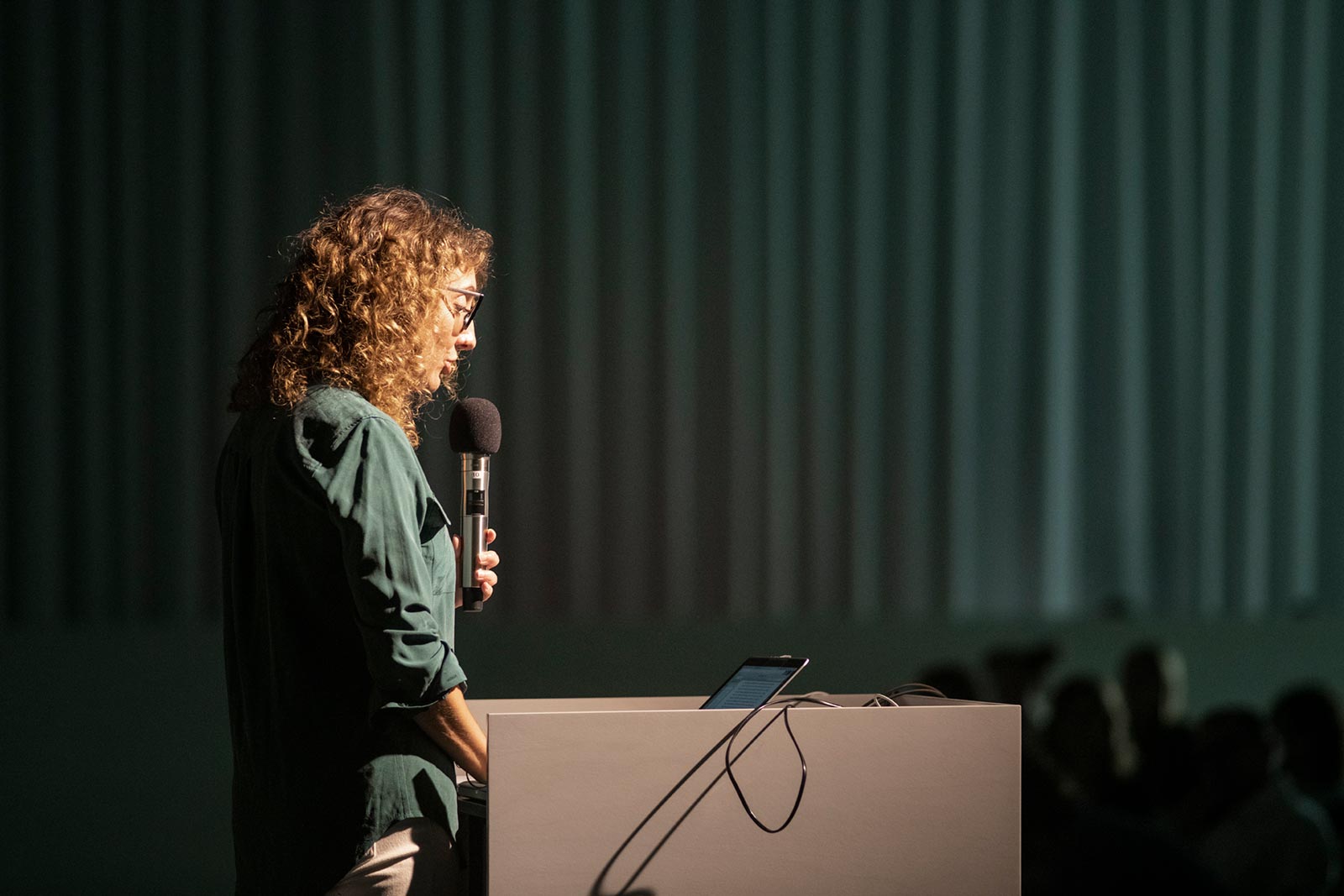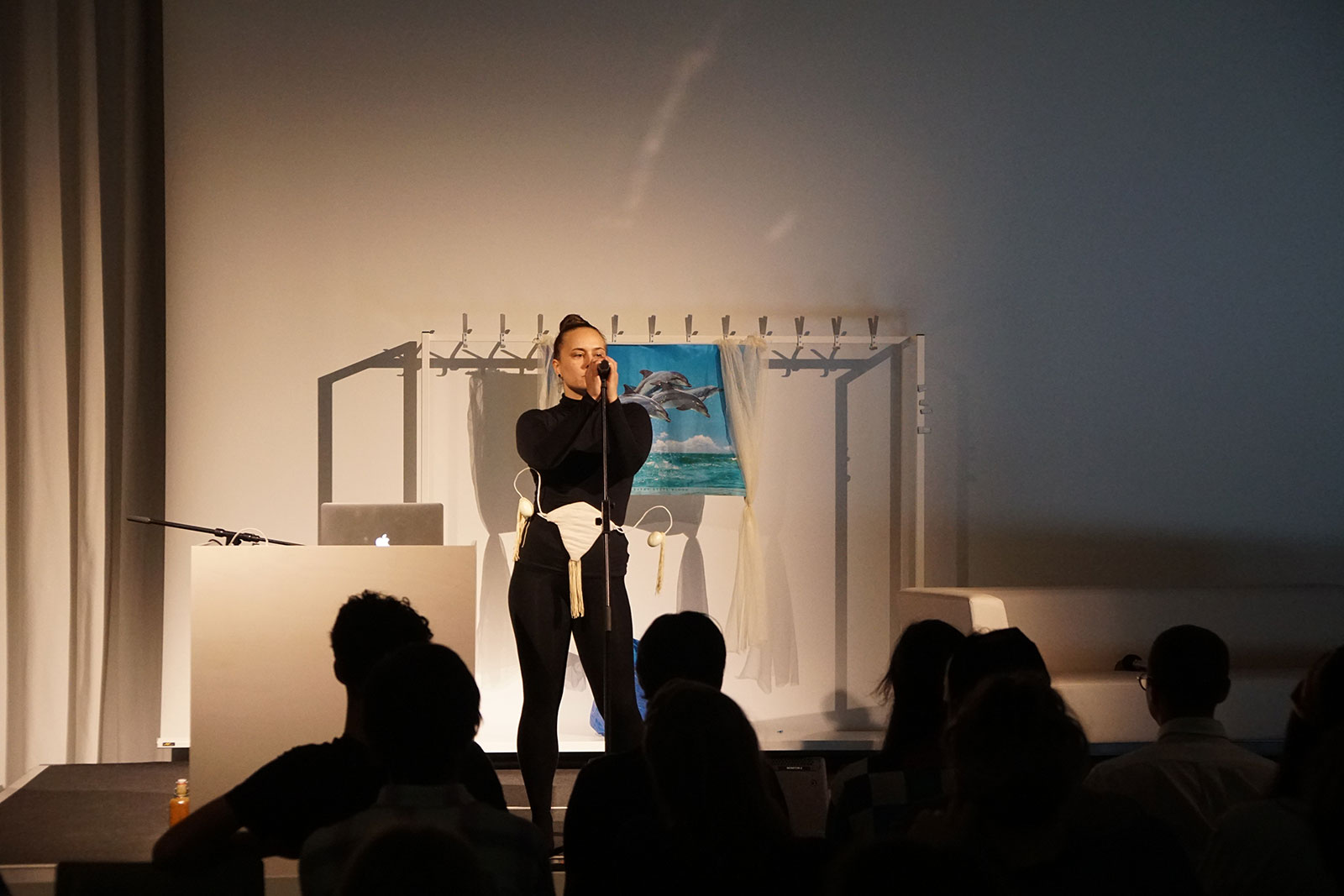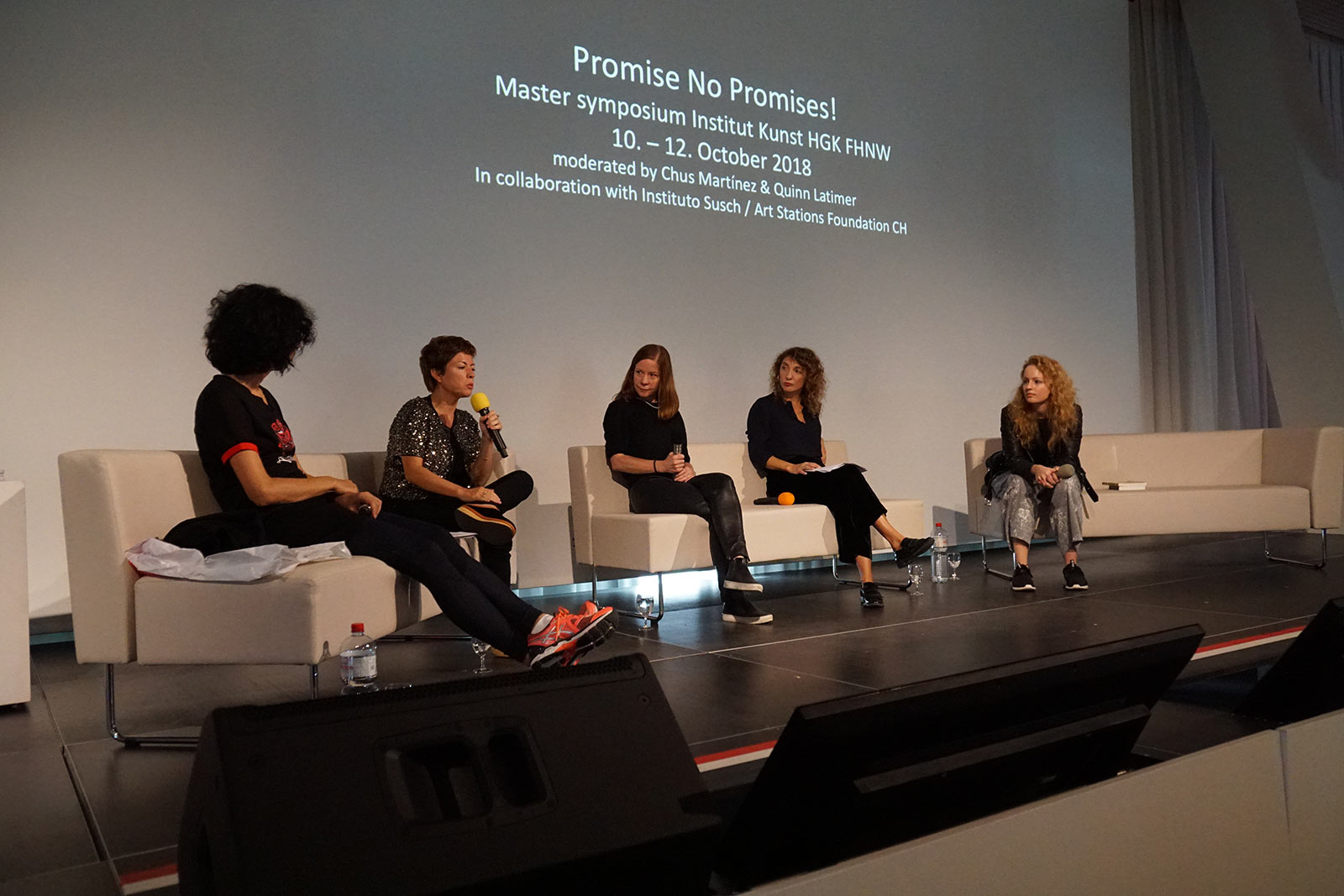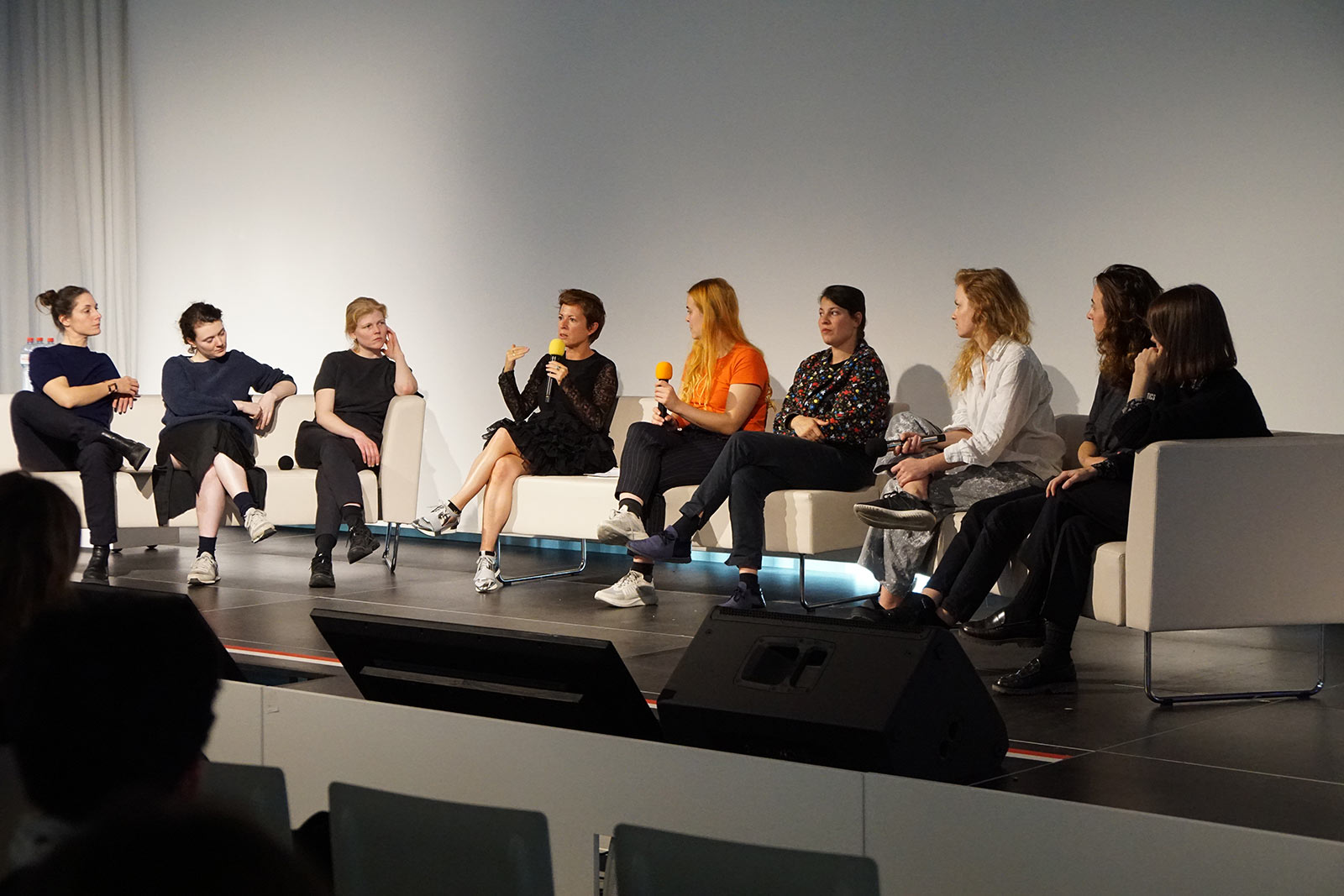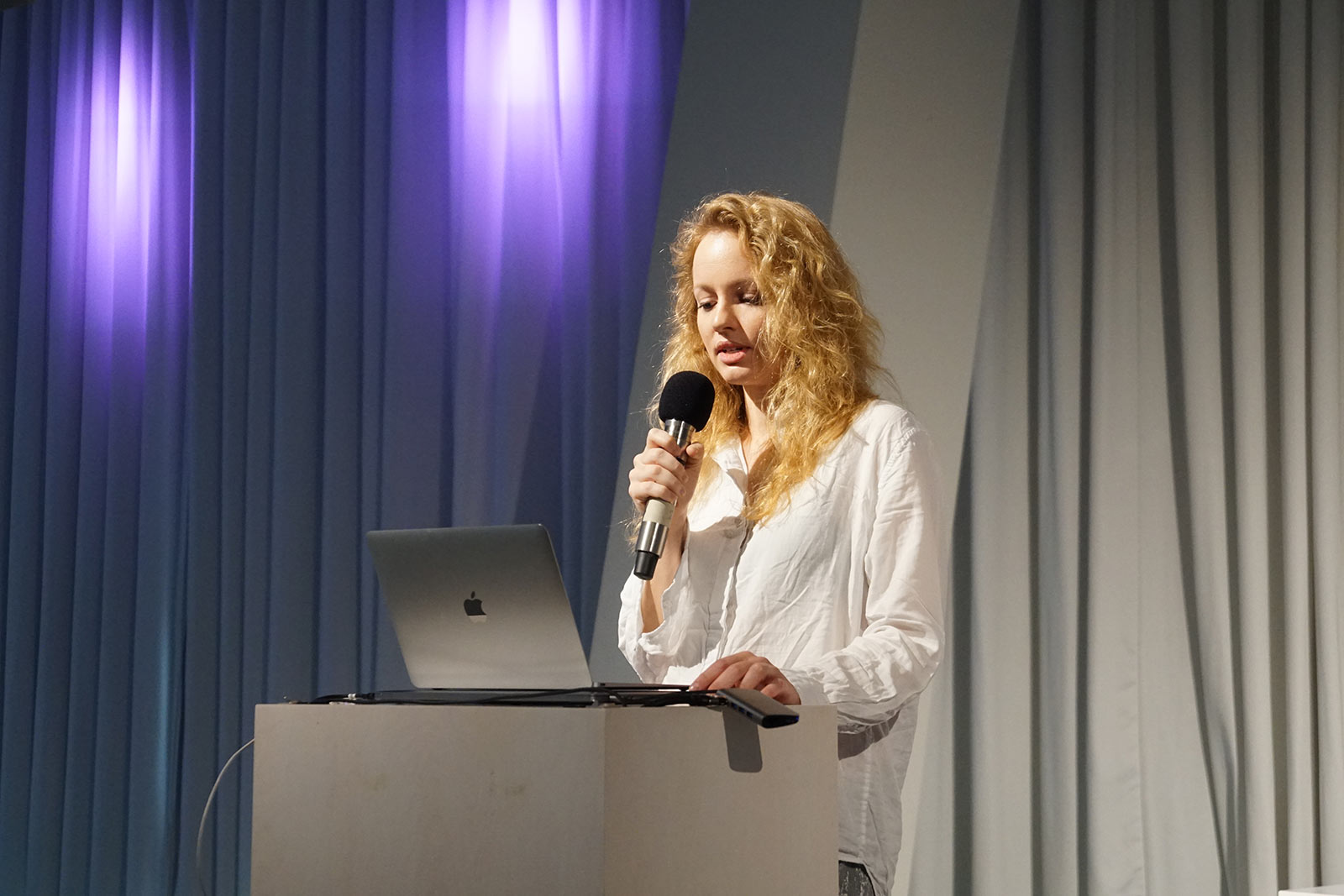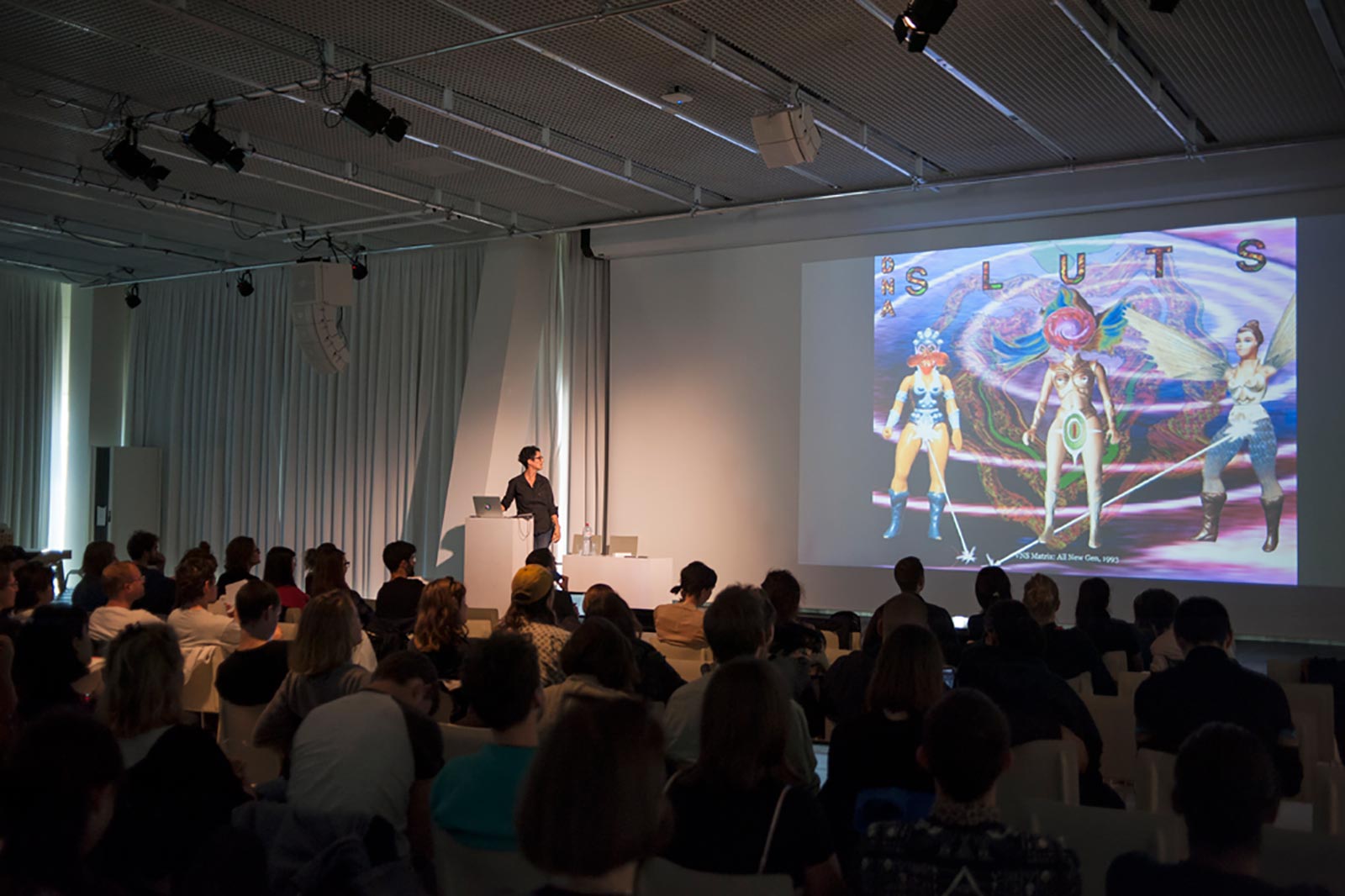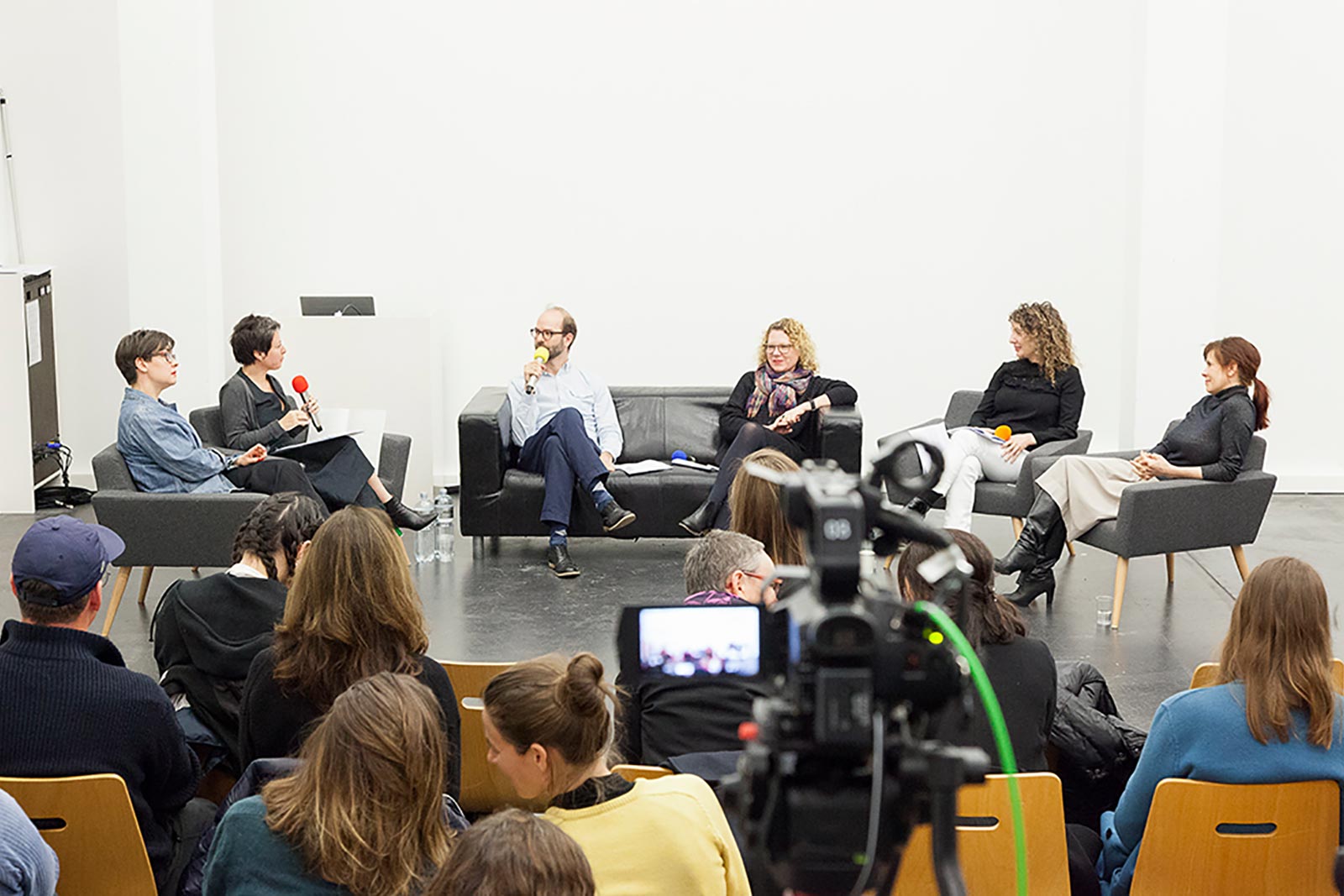The Genders' Factor
A think tank research project
The Genders' Center for Excellence is a think tank tasked to asses, develop, and propose new social languages and methods to understand the role of women and gender in the arts, culture, science and technology, as well as in all knowledge areas that are entangled with the field of culture today.
The project was initiated together with Grażyna Kulczyk and Art Stations Foundation CH, an institution founded by Grażyna Kulczyk that opened doors as Instituto Susch as part of Muzeum Susch in Engadine in late 2018. Entangled by a common interest in reviewing the role education in the arts plays to define the language and position of women, the research aims to situate crucial historical and current questions, to produce a form of teaching and debate around the subject, and to publish and explore how this work can be displayed, shared, and generously developed in forms of future, equal coexistence.
Quantum Knowledge: States, Systems, Fictions
Spring Symposium
2 – 3 April 2025
On-site and online
Auditorium D 1.04, Tower Building, HGK Basel FHNW
→ LIVESTREAM
As part of the symposium series Gender and Equality in the Arts
With contributions by Karen Barad, Mónica Bello, Johanna Bruckner, Mayte Gómez Molina, Adam Haar Horowitz, Nicole L’Huillier, Amanda E. Metzger, Manaswi Mishra, Jenna Sutela, Spencer Topel and James Wootton, and Suzanne Treister
Moderated by Chus Martínez and Quinn Latimer
Research: Marion Ritzmann
Press: Anna Francke
→ PRESS RELEASE (Pdf)
→ PROGRAMM (Pdf)
Quantum Knowledge: States, Systems, Fictions is held in conjunction with the UN’s International Year of Quantum Science and Technology.
The symposium is open to the public and will be held in English.
Free admission.
Quantum Knowledge: States, Systems, Fictions is a symposium dedicated to reconsidering the social and the scientific together. Beginning from those quantum discoveries and tools that allow us to sense the world in a deeper and more relational way, we might examine the inherent possibilities of quantum knowledges to preserve and expand the values we believe in as integral to a democratic society. As Karen Barad, keynote speaker of this symposium, notes: “The so-called uncertainty principle in quantum physics is not a matter of ‘uncertainty’ at all but rather of indeterminacy.” If scientific and technological revolutions are often victims of unfortunate appropriations that expose them only as a danger to the social good and our planetary contract, we believe that with the help of a good science, such nascent technologies and new forms of intelligence need not be placed in opposition to art, equity, and justice. Over the course of two days at Institute Art Gender Nature HGK Basel FHNW, a gathering of esteemed thinkers, physicists, artists, composers, computer scientists, curators, and technologists will discuss how quantum ideas and practices have irrevocably shaped their work and their thinking—artistic or otherwise—and how they might alter our own..
The symposium is dedicated to the memory of Alan Longino and Yutaka Matsuzawa.
Technical team
Emily Harries, Charlotte Horn, Katharina Kemmerling, Marco Mastrogiacomo, Daniele Praiano, Konrad Sigl
Following the first day of the symposium, on 2 April, from 5.30 pm, the exhibition The Cat in the Box will open at Atelier Mondial in Basel/Münchenstein. The show takes up the symposium’s subjects and will feature works by Shadwa Ali, Nikki Middlemiss, Elia Setiadi, Seraina Semmelroggen, and Olivia Vidovic. Curated by Filipa Ramos, The Cat in the Box is on view until 13 April, and is a collaboration between Atelier Mondial and Institute Art Gender Nature HGK Basel FHNW.
ateliermondial.com
Karen Barad’s participation in the symposium is hosted jointly with the University of Basel’s Center for Gender Studies.
genderstudies.philhist.unibas.ch
The Monster Is Us: Violence, Nonviolence, and the Authoritarian Turn
Fall Symposium
26 – 27 November 2024
On-site and online
Auditorium D 1.04, Tower Building, HGK Basel FHNW
→ LIVESTREAM
As part of the symposium series Gender and Equality in the Arts
With contributions by Basma al-Sharif, Elizabeth Breiner of Forensic Architecture, Candice Breitz, Sofia Karim, Roman Selim Khereddine, Diego Marcon, Ingo Niermann, Oleksiy Radynski, Tai Shani, Stas Shärifullá, and Latefa Wiersch
Moderated by Chus Martínez and Quinn Latimer
Research: Marion Ritzmann
Press: Anna Francke
→ PROGRAM (pdf)
→ PRESS RELEASE (pdf)
The symposium is open to the public and will be held in English. Free admission.
Amid the unqualified violence of the past year and years—with genocidal wars waged mostly against civilians—we have been reflecting on the dehumanization and demonization process heralded by such war’s wagers, by despots and democratically elected leaders alike. Antonio Gramsci’s lines, wildly paraphrased, from a fascist prison: “The old world is dying and the new world struggles to be born. Now is the time of monsters.” Gramsci’s reflection on the interregnum, a Roman idea of the limbolike moment when legality is suddenly suspended, also suggests the meaning of monster itself, which likely derives from the Latin verb monere, meaning, to warn. An alarm, then.
It appears that we are now in a new time of monsters—as authoritarianism moves faster than any progressive sense of solidarity and collective politics can. We’d like to ask you to join us for our two-day fall symposium, The Monster Is Us: Violence, Nonviolence, and the Authoritarian Turn, to be held on 26 and 27 November 2024, in Basel and online. Here we will speak within a space of artistic discourse and education—not as policy makers but as thinkers, artists, performers, writers, and filmmakers—about how our time of shattering violence might be reconsidered and contravened across our practices of living, working, and resisting together.
The Monster Is Us: Violence, Nonviolence, and the Authoritarian Turn is part of the biannual symposia series of the Institute Art Gender Nature HGK Basel FHNW, curated by Chus Martínez and Quinn Latimer. Ongoing since 2018, this series is part of the Institute’s curriculum and considers artistic practice in its entanglements with power, gender, language, coloniality, and ecology.
The symposium is dedicated to the memory of Mohammed Sami Qariqa.
Technical Team
Emily Harries, Charlotte Horn, Katharina Kemmerling, Marco Mastrogiacomo, Daniele Praiano, Konrad Sigl
Fox Trot, Crab Step, Lame Duck, Roger Rabbit, Do the Pony:
Animal Dancing as a Technology of Co-Evolving Bodies
Spring Symposium
15 – 16 May 2024
On-site and online
Auditorium D 1.04, Tower Building, HGK Basel FHNW
→ LIVESTREAM
As part of the symposium series Gender and Equality in the Arts
With contributions by Fahim Amir, Kate Foley, Claire Filmon for Simone Forti / Projet DICI, Krõõt Juurak and Alex Bailey / Performances for Pets, Edith Karlson and Maria Arusoo, Lisa Moravec, Alejandra Pombo Su, Filipa Ramos and Carlos Casas, and Feifei Zhou
Moderated by Chus Martínez and Quinn Latimer
Research: Marion Ritzmann
Press: Anna Francke
16 May 2024, 4.30 pm
Performance
Simone Forti’s Striding Crawling (1977)
performed by Claire Filmon / Projet DICI
der TANK
→ PROGRAM (pdf)
→ PRESS RELEASE (pdf)
The symposium is open to the public and will be held in English.
Admission free.
“When dance will come to robots naturally, they will free themselves from being just tools at the service of humans,” an MIT researcher recently said (we paraphrase). In 1998, E.O. Wilson, an American biologist and authority on ants, published Consilience: The Unity of Knowledge, in which he advocated for the interrelatedness and evolutionary origins of all human thought. He used a notion, consilience, to name the magical “jumping together” of all knowledges. That is, what we might call today, all existing forms of intelligence. To that end, the spring symposium at Institute Art Gender Nature HGK Basel FHNW is dedicated to such movement—jumping, robotic, animal or otherwise—and the various knowledges and forms of life it brings together. Entitled Fox Trot, Crab Step, Lame Duck, Roger Rabbit, Do the Pony: Animal Dancing as a Technology of Co-Evolving Bodies, the symposium will be devoted to histories, choreographies, and ideas of animal movement and their evolution and appropriation in dance and performance across eras, cultures, and geographies.
Fox Trot, Crab Step, Lame Duck, Roger Rabbit, Do the Pony: Animal Dancing as a Technology of Co-Evolving Bodies is part of Institute Art Gender Nature’s biannual symposia series Gender and Equality in the Arts that considers artistic practice within its entanglements with gender, coloniality, language, and ecology.
The symposium is dedicated to the memory Ida Applebroog.
Technical Team
Charlotte von Engelberg, Emily Harries, Katharina Kemmerling, Daniele Praiano, Konrad Sigl, Kim Surenthiran
Shores of Sahara-Sahel: Waves, Forms, Futures
IN MEMORY OF LIN MAY SAEED
Master Symposium
11 – 12 October 2023
On-site and online
Auditorium D 1.04, Tower Building, HGK Basel FHNW
Institute Art Gender Nature HGK Basel FHNW
in collaboration with Culturescapes 2023 Sahara
As part of the symposium series Gender and Equality in the Arts
With contributions by Phoenix Atala, Kateryna Botanova, Binta Diaw, Adji Dieye, Onome Ekeh, Va-Bene Elikem Fiatsi (crazinisT artisT), Yarri Kamara, Benaouda Lebdai, Rania Mamoun, Yara Mekawei, Kettly Noël, Temitayo Ogunbiyi, and Mohamed Sleiman Labat
Moderated by Chus Martínez and Quinn Latimer
Research: Marion Ritzmann
Press: Anna Francke
12 October 2023, 4.30 pm
Performance The Dust in Bed by Va-Bene Elikem Fiatsi [crazinisT artisT]
der TANK
→ Press release and program (pdf)
The symposium is open to the public and will be held in English.
Program Culturescapes 2023 Sahara: culturescapes.ch
“For centuries,” Benaouda Lebdai notes, “the Sahara was a space of human and cultural transhumance.” Neither uncrossable nor empty, as it is often narrated, this prismatic region—a vast desert space of dunes, volcanic mountains, salt flats and rocky plateaus, village oases, and prehistoric seabeds—was long a site of social and artistic transfer and epistemological exchange, before being cast into a colonial system by Europe, and turned into a racialized border, shore to shore. Ibrahima Baba Kaké himself once wrote: “Those who thus separate Africa into two different entities make a historical nonsense. The desert must once again become a catalyst… Restoring relations initiated by the ancestors, stopped by the colonial system, is a necessity.”
Under the sign of this necessity, and in the deep shadow of a changing climate that is violently disrupting the Sahara’s disparate ecologies, the autumn symposium of Institute Art Gender Nature HGK Basel FHNW will be devoted to the artistic and cultural productions, lines of political and aesthetic thought, and epistemologies of the Sahara, and the accompanying Sahel. Titled Shores of Sahara-Sahel: Waves, Forms, Futures, the symposium will be held in collaboration with the Culturescapes 2023 Sahara festival, and will take place on 11 and 12 October 2023, at Institute Art Gender Nature HGK Basel FHNW. Over the course of its two days, the symposium and its artists, thinkers, writers, performers, poets, translators, choreographers, and composers—all come from or engaged with the Sahara-Sahel, or their diasporas—will consider some of the ideas, performances, poetics, politics, fictions, materials, and movements that continuously emerge from this kaleidoscopic space.
Shores of Sahara-Sahel: Waves, Forms, Futures is part of Institute Art Gender Nature’s biannual master symposia series that considers artistic practice within its entanglements with gender, coloniality, language, and ecology. Among the artist talks and presentations, Shores of Sahara-Sahel will also include a book launch of Sahara: A Thousand Paths Into the Future (Sternberg Press, 2023), the Culturescapes 2023 Sahara publication edited by Kateryna Botanova, Yarri Kamara, and Quinn Latimer. A closing performance by Va-Bene Elikem Fiatsi (crazinisT artisT) will take place in der TANK, on 12 October 2023.
This symposium is dedicated to the memory of artist Lin May Saeed.
Technical team
Charlotte von Engelberg, Katharina Kemmerling, Marco Mastrogiacomo, Tabea Rothfuchs, Konrad Sigl, Kenny Süffert
Genders of the Forests
IN MEMORY OF SILKE OTTO-KNAPP
Master Symposium
24 – 25 May 2023
On-site and online
Auditorium D 1.04, Tower Building, HGK Basel FHNW
As part of the symposium series Gender and Equality in the Arts
With contributions by Jumana Emil Abboud, Paula Baeza Pailamilla, Chiara Camoni, Gauri Gill, Pujita Guha, Monica Ursina Jäger, Pauline Julier, Gayatri Kodikal, Franziska Lauber, Alexandra Navratil, Claire Pentecost, Lucia Pietroiusti, Filipa Ramos, Mathilde Rosier, Ana Vaz, and Yvonne Volkart & Felipe Castelblanco
Moderated by Chus Martínez and Quinn Latimer
Research and Coordination: Marion Ritzmann, Arianna Guidi
Press: Anna Francke
→ Press release and program (pdf)
The symposium is open to the public and will be held in English.
The spring Master symposium at Institute Art Gender Nature, HGK Basel FHNW, will feature a special convening of artists, writers, ecologists, thinkers, curators, activists, and other art practitioners, all of whom, in their disparate practices, consider the forest as both fact and metaphor, at once life form and a kind of epistemology. Titled Genders of the Forests, and held on 24 and 25 May 2023, the symposium will examine the various forms our ecological relationships with forests take, from language-making and care and pedagogy to human-nonhuman communication, at once nonbinary and myriad in possibility.
Acknowledging forests means to address both their extant meaning and their rapid extinction, and to render visible the differences between the rural, the countryside, forestry, and nature itself. Avoiding reductionistic solutions means imagining new realms for the arts in relation with the nonhuman in an era in which our art systems are being profoundly transformed due to climate collapse, retracting economies, and energy transformation. The forest—as an image and as a reality, as a site of growth, relation, and destruction—presents us with unexpected ground from which to imagine the world from within its coverage.
The symposium is dedicated to the memory of artist Silke Otto-Knapp.
Genders of the Forests continues the biannual Master symposia series at Institute Art Gender Nature, Basel, begun in 2018, which centers questions of gender, language, ecology, social justice, and artistic practice, in an intimate environment of artistic inquiry and generous conversation. We look forward to you joining us there.
Technical team
Katharina Kemmerling, Marco Mastrogiacomo, Kristina Pavlovic, Françoise Payot, Emma Rodewald, Stefanie Rohrer, Tabea Rothfuchs, Konrad Sigl, Kim Surenthiran, Suresh Surenthiran
Songs to Sound Worlds, Stories to Rewrite Them:
On Gender, Storytelling, and Myth
IN MEMORY OF ETEL ADNAN
Master Symposium
10 – 11 November 2022
10 am – 5.15 pm
As part of the symposium series Gender and Equality in the Arts
With contributions by Jumana Emil Abboud, Bani Abidi, Ruanne Abou-Rahme and Basel Abbas, Christian Campbell, Astrit Ismaili, Saodat Ismailova, Acaye Kerunen, Tessa Mars, Marie Hélène Pereira, Sheelasha Rajbhandari and Hit Man Gurung, Tracey Rose, Kara Springer, and Françoise Vergès
Moderated by Chus Martínez and Quinn Latimer
Research: Marion Ritzmann
Press: Anna Francke
On-site and online
Auditorium D 1.04, FHNW Academy of Art and Design in Basel
→ Press release and program (pdf)
The symposium is open to the public and will be held in English.
Following the symposium, Media Culture A-Z: Coding Care + Publication Launch will take place on 10 November 2022 from 6.30 pm at HEK at Dreispitz in Basel.
→ More information
Based on the contributions of Jumana Emil Abboud, Bani Abidi, Christian Campbell, Astrit Ismaili, Acaye Kerunen, Tessa Mars, and Kara Springer podcast episodes were produced as part of the series Promise No Promises!.
→ Podcasts
→ Video of the Master symposium Songs to Sound Worlds, Stories to rewrite them
Etel Adnan once wrote, spectrally and spectacularly, “Mountains are spaceships.” And: “Mountains are women.” What else are mountains? What else womxn? Whose spaceship? And why collapse them into one story? To critically and virtuosically address the world—that is, to narrate and thus create it—from such mythic and counterhegemonic positions means to face colonial histories and neocolonial realities, as well as their denial of ancestral and speculative ways of perceiving and shaping that very world. The autumn Master Symposium at the Institute Art Gender Nature HGK FHNW, in Basel, is devoted to artists and thinkers whose work addresses the importance of retelling and reinterpreting stories and myths that regard identity and gender with all their ecological and spectral entanglements intact. Such myths—narratives we might variously call mytho-historiographies or critical fabulations—often transcend colonial binaries, offering life-generating languages that employ fiction and fantasy, poetry and song. Many of these myths predate the systems imposed by hetero-modernity and its patriarchization of our most foundational stories.
Technical team: Arsshanth Appapillai, Karin Borer, Lovis Dalla Libera, Katharina Kemmerling, Kristina Pavlovic, Stefanie Rohrer, Konrad Sigl, Kim Surenthiran, Suresh Surenthiran
The symposium is supported by SüdKulturfonds. Media partner: arttv.ch
Ages of Receivership: On Generous Listening
IN MEMORIAM OF MAJA NAEF
Master symposium
16 – 17 March 2022
As part of the symposium series Womxn in the Arts and Leadership
On site and online
Auditorium D 1.04, FHNW Academy of Art and Design, Basel
With Caroline Bergvall, Merve Yeşilada Çağlar, Bill Dietz, Nina Emge, Jazmina Figueroa, Virna Gülzari, Ayesha Hameed, Kate Lacey, Nour Mobarak, Dylan Robinson, Aura Satz, Stas Sharifullin, Li Tavor & Nicolas Buzzi, and Hannah Weinberger
Moderated by Chus Martínez and Quinn Latimer
Research associate: Marion Ritzmann
Press / communication: Anna Francke
→ Press release and program (Pdf)
The symposium is open to the public and will be held in English.
Based on the contributions of Bill Dietz, Jazmina Figueroa, Kate Lacey, Nour Mobarak, Dylan Robinson, and Aura Satz podcast episodes were produced as part of the series Promise No Promises!.
→ Podcasts
“Who, if I cried out, would hear me?” So Rilke begins “The First Elegy” in his Duino Elegies, in which he ecstatically delineates his belief in being an “open receiver” to the world. “But listen to the breath, / the unbroken message that creates itself from the silence. / It rushes towards you now.” And it does, it rushes toward all of us now, in the fact of a word—listening—that is suddenly inescapable, continually coined and communicated and traded, and in the form of a multitude of practices—artistic, ecological, activist, technological, theoretical, pedagogical—in which listening is both methodology and ethical framework. So it is that we have come to call the spring master symposium at the Institute Art Gender Nature, in Basel, Ages of Receivership: On Generous Listening. Held over the course of two days, 16 and 17 March 2022, the symposium will be devoted to forms and ethics of listening—at once active, deep, decolonial, generous, public, poetic, or otherwise—and how they are entangled with aspects and ideas of poetics, coloniality, gender, spectatorship, critique, and nonhuman worlds.
Is listening a form of both poetics and political action? It is. Moreover, it is often employed as an ethical engagement with pedagogy and cultural critique. While hearing has, until recently, often been described as a passive act, listening is broadly understood as an active way of engaging with the other, with oneself and with nature. If certain assumptions subscribe listening and storytelling to womxn and elders, the broadcasted voice—all agency and production and new technologies—is often gendered as male. This symposium will address such ancient and recent ideas about the politics and gender of sound, through histories and performances of audio, and technologies of communication and reception, while addressing listening as a key methodology in reaching goals of political, ecological, and artistic equity, from decolonization and democracy building to issues of mental health. Through lectures, performances, artist talks, and conversations, the symposium will survey current artistic practice and research engaged in creating active forms of response that begin with the receiver-speaker relationship, that is, an address to another.
Ages of Receivership: On Generous Listening is dedicated to the memory of art historian and critic Maja Naef who lived and worked in Basel.
The symposium is supported by Vuslat Foundation.
#ElevateListening #GenerousListening

Seeing Into the Heart of Things: Earth and Equality Within Indigenous and Ancestral Knowledges
IN MEMORY OF VIRGINIA PEREZ RATON
Master symposium
3 – 5 November 2021
Institute Art Gender Nature HGK FHNW in Basel in collaboration with CULTURESCAPES 2021 Amazonia
As part of the symposium series Womxn in the Arts and Leadership
With Annette Amberg and Vídeo nas Aldeias, Vandria Borari, Kateryna Botanova, Felipe Castelblanco in conversation with Taita Hernando Chindoy and Ayenan Quinchoa, Pauliina Feodoroff, Katya García-Antón, Biung Ismahasan, knowbotiq with Ana Garzón Sabogal, Timimie Märak, Jeremy Narby, Ashfika Rahman, and Pamela Rosenkranz.
Keynote Lecture by Davi Kopenawa
Moderated by Chus Martínez and Quinn Latimer
Research associate: Marion Ritzmann, Karin Borer
Communication: Sarina Scheidegger
Technical team: Colin Barth, Janusha Kenganathan, Marco Mastrogiacomo, Milena Mihajlovic, Kristina Pavlovic, Konrad Sigl
→ Download press release and program
The symposium will be held at the Aula (D1.04) of the Academy of Art and Design in Basel or is accessible via live stream.
The symposium is open to the public. Please note that from October 18, 2021, a valid Covid-19 certificate is necessary to enter the FHNW Academy of Art and Design in Basel. Admission and control are accessible 15 minutes before the start of each event. Please wear a protective mask for mouth and nose.
Based on the contributions of Vandria Borari, Kateryna Botanova, Pauliina Feodoroff, Katya García-Antón, knowbotiq, Jeremy Narby, and Ashfika Rahman podcast episodes were produced as part of the series Promise No Promises!.
→ Podcasts
Since the long sixteenth century, the organization of the world has found its hegemonic form in hierarchies of power and possession, between those who exploit and expropriate and those who are exploited and whose lives and lands and resources are expropriated. This is not the past, nor a function of ideology only. If the projected supremacy of one form of life over all others is only made possible by manifold forms of violence, one of these forms remains the invention (and constant reinvention) of nature by colonial cultures. This invention rests on an idea of progress in which nature is construed as what one emerges from. Indigenous ancestral epistemologies hold a different understanding of the real, though.
«The land owns us,» Aboriginal Australians might say. Or, as Ailton Krenak, the Brazilian Indigenous writer, thinker, and Krenak leader notes: «It is only possible to imagine nature if you are outside of it. How could a baby that is inside its mother’s uterus imagine the mother? How could a seed imagine the fruit? It is from outside that one imagines the inside.»
How, then, to resist this binary and the violence with which it is enforced? How to repair what it wounds? Held in conjunction with CULTURESCAPES 2021 Amazonia, the Swiss interdisciplinary cultural festival, the autumn Master symposium of the Institute Art Gender Nature will be dedicated to ideas and forms of Indigenous thought and allied artistic practices that imagine and propose disparate forms of co-existence. Over the course of three days at the Institute Art Gender Nature, from November 3 to 5, 2021, artists, elders, writers, curators, and allies will come together in Basel to discuss Indigenous thought, decolonial feminisms, and the political possibilities of the mythic imagination. Certain questions will preoccupy us: How do Indigenous cosmologies create forms for resistance? How does the Western imaginary of the Amazon, from its roots in racial capitalism to its corporate-tech, paternalistic present, cloud our understanding of how its peoples and nonhuman spirits narrate themselves? How, in particular, do ecological and decolonial practices find their form in the visual and oral matrices of Indigenous narratives across the world?
Going to the Limits of Your Longing, Research as Another Name for Care
IN MEMORY OF MARION VON OSTEN
As part of the symposium series Womxn in the Arts and Leadership
Master symposium
17 – 18 March 2021
Contributions by by Maria Thereza Alves, Ursula Biemann, Regina Bittner, Barbara Casavecchia, Anja Kirschner, Kapwani Kiwanga, Maria Lind, Otobong Nkanga, Lydia Ourahmane and Myriam Amroun, Filipa Ramos, Kerstin Stakemeier, as well as Yvonne Volkart and Peter Spillmann
Moderated by Chus Martínez and Quinn Latimer
Research Associate: Marion Ritzmann
Press and communication: Anna Francke
→ Download Press release and program
The symposium is open to the public via Zoom and will be held in English.
Based on the contributions of Barbara Casavecchia, Maria Lind, Otobong Nkanga, Filipa Ramos, and Peter Spillmann podcast episodes were produced as part of the series Promise No Promises!.
→ Podcasts
Once upon a time, or just a couple of decades ago, womxn artists from various and diverging geographies began to query and study the gap that has traditionally existed between artistic and non-artistic labor. As artistic labor came to be understood as more representative of society’s functioning as a whole, new questions concerning the political dimensions of art and the role of the artist in contemporary society came to life. Research has often been the term applied to the act of inquiring into the postcolonial past (and neocolonial present), an inquiry whose very substance gives voice to the need to revise the fundaments of our unachieved and fragile democracies, their languages, tools, forms of violence, and myriad legacies.
Going to the Limits of Your Longing, Research as Another Name for Care, the spring 2021 Master symposium at Art Institute HGK FHNW, in Basel, will be devoted to ideas and forms of artistic research that center art as a practice in service of the social. With this symposium we will revisit certain moments in our recent history and present of researching, producing, and exhibiting art in the name of such beliefs, namely social justice. To that end, this gathering will be dedicated to the memory of Marion von Osten, the artist, curator, researcher, writer, and teacher whose curatorial, theoretical, and altogether empathic approaches to the medium of exhibition-making revolved around artistic research devoted to the collective.
In von Osten’s memory, and under her exemplary influence, we will examine the moments when exhibitions became filled with archives, with documents of testimonies and documentaries of testifying moving images. Institutions suddenly saw the need to create collective collections—like the Former West curatorial research project, for example. It was the beginning of a transformation that, since then, has undergone many turns and many faces, but that remains at the core of understanding art as a practice that serves the social and all the forms of justice (and its opposite) that enumerate it.
Womxn in Motion
The making and unmaking of the world through movement and movements
As part of the symposium series
Women in the Arts and Leadership
Master symposium
7 – 8 October 2020 (open to the public*)
9 October 2020, Workshop (Master students only)
Tower Building Auditorium D 1.04, Freilager-Platz 1, 4002 Basel
Guests: Kat Anderson, Julieta Aranda, Barbara Casavecchia, Mayra A. Rodríguez Castro, Pan Daijing, Dorota Gawęda and Eglė Kulbokaitė, Ingela Ihrman, Pauline Curnier Jardin, Bhanu Kapil, Lynne Kouassi, Isabel Lewis, Tessa Mars, Sonia Fernández Pan, Sadie Plant, Martina-Sofie Wildberger
Moderated by Quinn Latimer and Chus Martínez
Research Assistant: Alice Wilke
→ Download press release and program
The symposium will be held in English and will be streamed live.
*A limited number of places was open to an external audience upon advance registration only (registration period expired). Masks are mandatory.
The symposium Womxn in Motion is a collaboration with Instituto Susch / Art Stations Foundation CH and Grażyna Kulczyk.
Based on the contributions of Barbara Casavecchia, Mayra A. Rodríguez Castro, Sonia Fernández Pan, Tessa Mars, and Martina-Sofie Wildberger podcast episodes were produced as part of the series Promise No Promises!.
→ Podcasts
Womxn in Motion is dedicated to ideas and iterations of performance, and to the way in which its embodied practices—its bodies—are often framed or received by narrow notions not only of gender, race, class, geography, and technology, but of what performance itself means and entails: a body in motion, for example. Whose body, though, and what kind of movement? Movement is always both, suggesting something singular—a body in tender, private effort—and something collective. Picture a “demonstration” (in every sense) of bodies in communal action, in solidarity, in some street. Picture bodies on some stage (itself a street, perhaps); now feel yourself among them. This symposium, then, is dedicated not only to the practices of artists and thinkers who engage bodies (their own or others) and corporeal movement in their work, but to those social movements built on a collective body demanding collective change together.
Women on Earth
As part of the symposium series
Women in the Arts and Leadership
Master symposium
9 – 10 October 2019, 10 am – 5 pm (open to the public)
11 October 2019, Workshop (Master students only)
Tower Building Auditorium D 1.04
Moderated by Chus Martínez & Quinn Latimer
Research Assistants: Marion Ritzmann, Alice Wilke
The symposium will be held in English.
Guests: Rosella Biscotti, Neha Choksi, Ingela Ihrman, Institute of Queer Ecology, Sophie Jung, Lysann König, Thomas Lempertz, Agnes Meyer-Brandis, New Mineral Collective (Tanya Busse and Emilija Škarnulytė), Katrin Niedermeier, Heather Phillipson, Mathilde Rosier, Lena Maria Thüring
As a sequel to Promise no Promises! and Women in Space, the third symposium at Art Institute will be dedicated to Earth, its ideas, its spin, its possible dark futures. These symposia, moderated by Chus Martínez and Quinn Latimer, are a series of public events within the framework of the Women’s Center for Excellence, a long-term research project initiated by the Art Institute, together with Instituto Susch, a joint venture with Grażyna Kulczyk and Art Stations Foundation CH.
Based on the contributions of Rosella Biscotti, Neha Choksi, Sophie Jung, Tanya Busse, and Emilija Škarnulytė podcast episodes were produced as part of the series Promise No Promises!
→ Podcasts
Women in space
Master symposium as part of the series
«Women in the Arts and Leadership»
4 – 5 April 2019
Art Institute HGK FHNW in Basel
→ Watch Live Stream
→ Download program
Guests: Nikola Dietrich, Mareike Dittmer, Raffael Dörig, Elvira Dyangani Ose, Fanni Fetzer, Elena Filipovic, iLiana Fokianaki, Ines Goldbach, Sabine Himmelsbach, Claire Hoffmann, Manuela Moscoso, Marie Muracciole, Elfi Turpin and Nadine Wietlisbach
Making reference to the exploratory nature of space travel, and all its attendant problematics and projections, «Women in Space» thematizes the role of scale and space and power in envisioning women in the art system. Who is alien here, and what kind of system, solar or other?
Moderated by Chus Martínez and Quinn Latimer, this symposium is a public event within the framework of the Women's Center for Excellence, a long-term research initiated by the Art Institute in Basel together with Instituto Susch, a joint venture with Grażyna Kulczyk and Art Stations Foundation CH.
«Women in Space» is made possible thanks to the generous support of the Federal Office of Culture FOC.
Based on the contributions of Nikola Dietrich, Mareike Dittmer, Raffael Dörig, Fanni Fetzer, Elena Filipovic, iLiana Fokianaki, Ines Goldbach, Sabine Himmelsbach, Claire Hoffmann, Sophie Jung, Manuela Moscoso, Marie Muracciole, Elfi Turpin, and Nadine Wietlisbach podcast episodes were produced as part of the series Promise No Promises!.
→ Podcasts
Promise No Promises:
The Podcast!
The Art Institute and Instituto Susch / Art Stations Foundation CH launch a new joint podcast series
Promise No Promises is a podcasts series produced by the Women’s Center for Excellence, a research project between the Art Institute and the Instituto Susch—a joint venture with Grażyna Kulczyk and Art Stations Foundation CH. The Women’s Center for Excellency is conceived as a think tank tasked to assess, develop, and propose new social languages and methods to understand the role of women in the arts, culture, science, and technology, as well as in all knowledge areas that are interconnected with the field of culture today.
Subscribe to the channel on Apple Podcasts
itunes.apple.com
Listen to the podcast on the Art Institute's website
dertank.ch
PROMISE NO PROMISES!
Master symposium as part of the series
«Women in the Arts and Leadership»
10 – 11 October 2018
Art Institute HGK FHNW in Basel
Guests: Stefanie Hessler, Natascha Sadr, Hannah Weinberger, Alexandra Navratil, Julieta Aranda, Elise Lammer, Emily Ding, Laura Miriam Leonardi, Selina Grüter & Michèle Graf, Camille Aleña, Axelle Stiefel, Katharina Brandl, Lhaga Koondhor, Raffaela Naldi Rossano and Mareike Dittmer
This symposium is a two-day meeting among artists and practitioners to pose questions on the position of women in the arts. Moderated by Quinn Latimer and Chus Martínez it inaugurates a series of events as part of the Women’s Center for Excellence, a long-term research project initiated by the Art Institute together with Instituto Susch, a joint venture with Grażyna Kulczyk and Art Stations Foundation CH.
I am under the impression that when a woman reaches a certain position, all the privileges that this position has implied historically are already gone. It is very often the case that a woman’s arrival at a high level of influence within an organization is also an indicator of an internal crisis that is going to affect the whole organization. It is often said that there is an increase of women directors at mid-sized institutions (like Kunstvereine in Germany, Kunsthalles, and other non-for-profit structures) and yet this abundance is accompanied by talk of an institutional crisis, and a negative development of the budget and the staff, together with a demand of the newly appointed women directors to compensate for the lack of third-party funding for the institutions. [...]
Is Technology Sexist?
Master symposium
On Media, Post-humanity and the Role of Gender
in the development of a new Media Practice
11 – 13 October 2017
Art Institute, FHNW Academy of Arts and Design in Basel
Guests: Alan Bogana, Raffael Dörig, Paul Feigelfeld, Hannes Grassegger, Mavie Hörbiger, Matylda Krzykowski, Shusha Niederberger, Filipa Ramos, Emily Segal, Who writes his_tory?
Hosted by Chus Martínez and Paul Feigenfeld
The symposium has been made possible thanks to the generous support of the Federal Office of Culture FOC.
